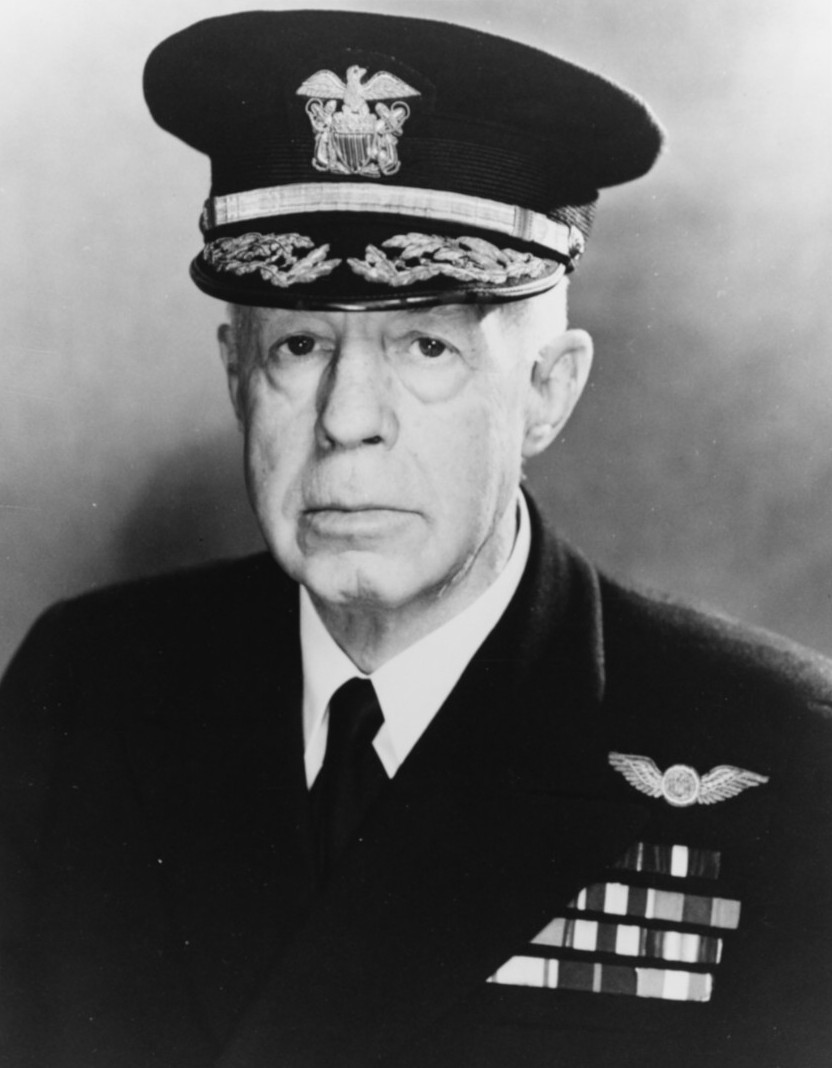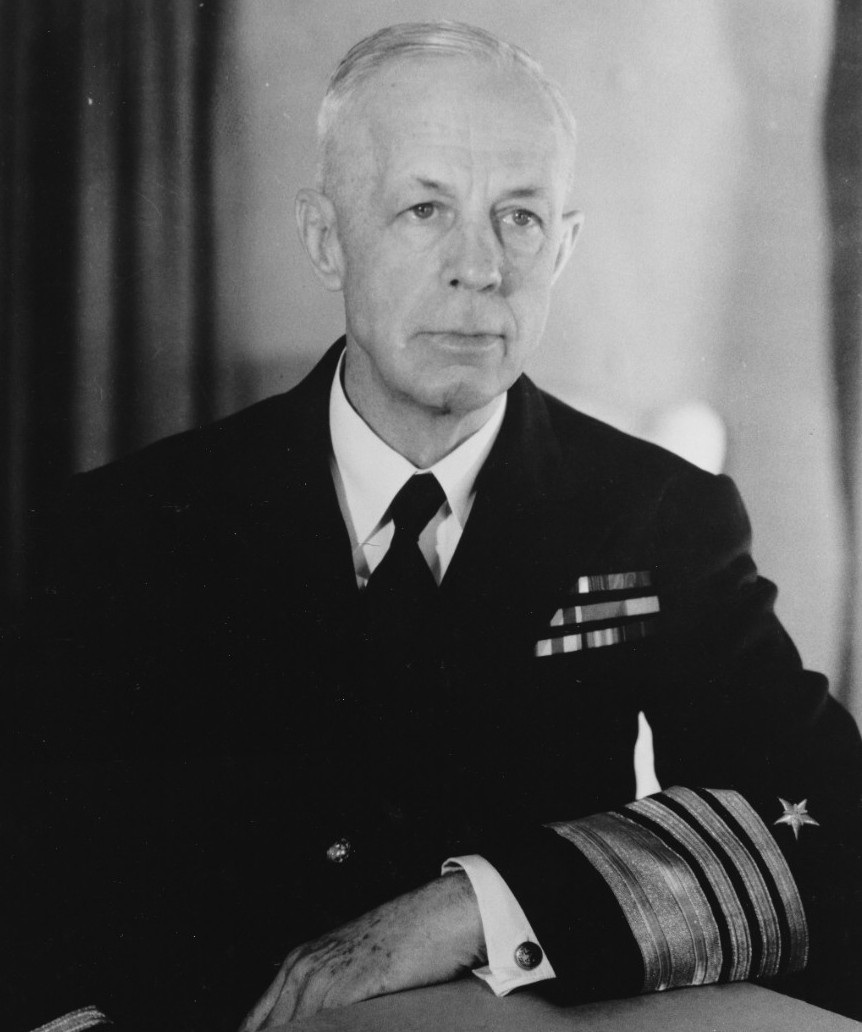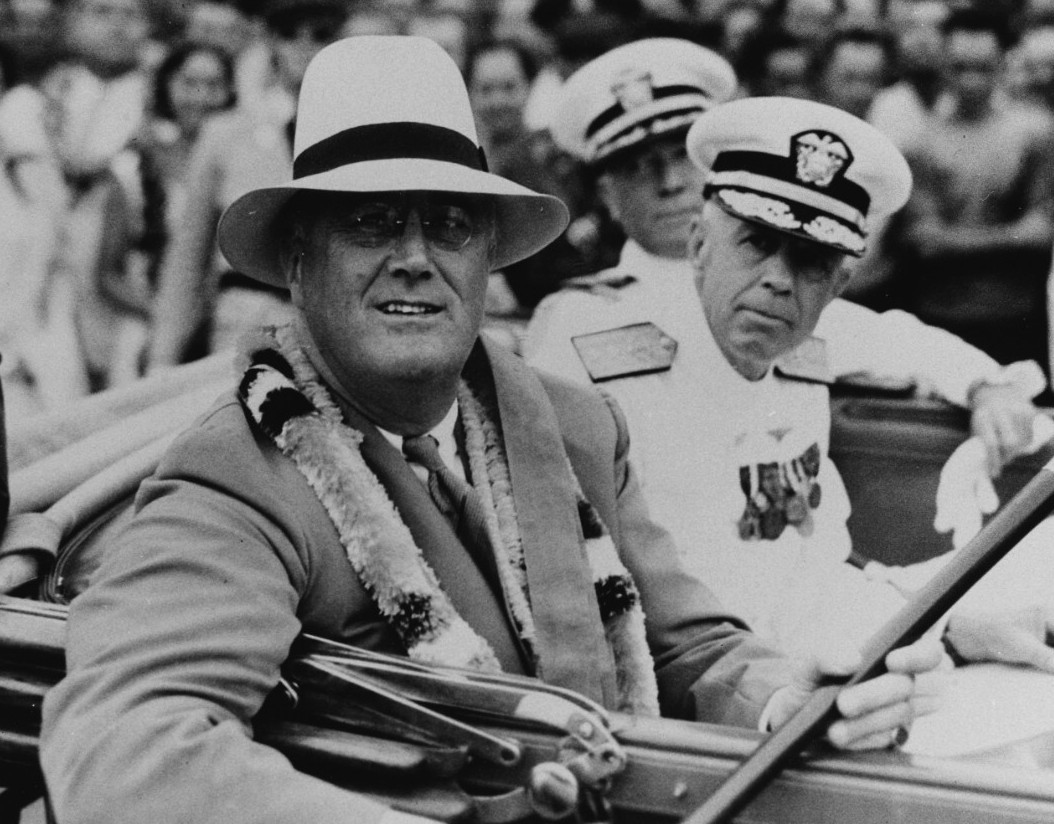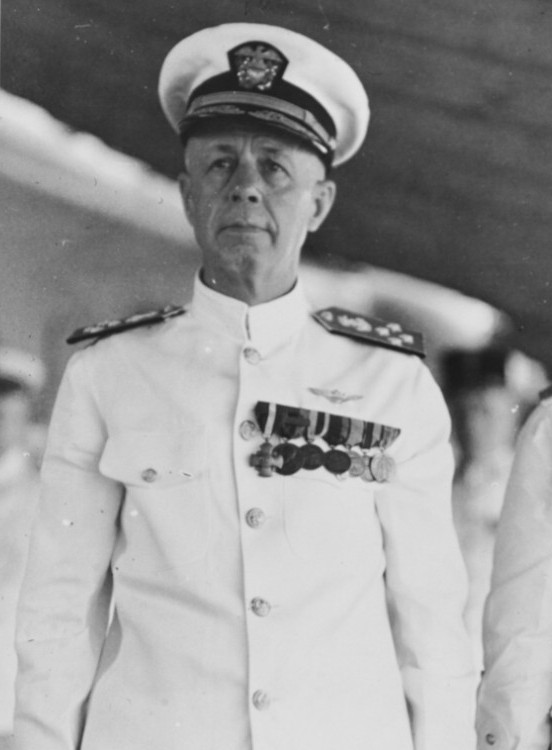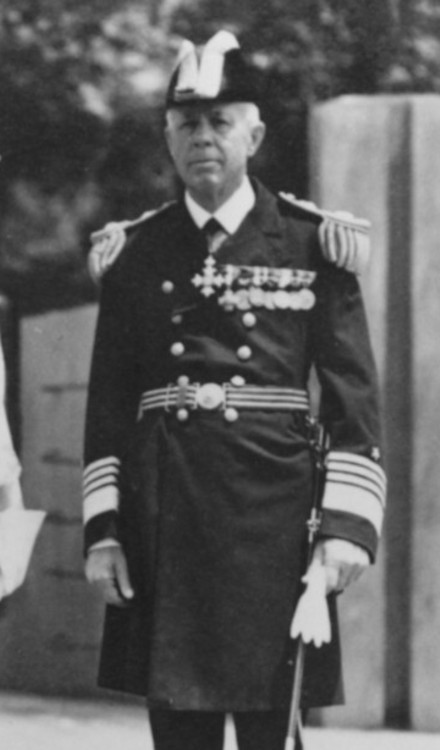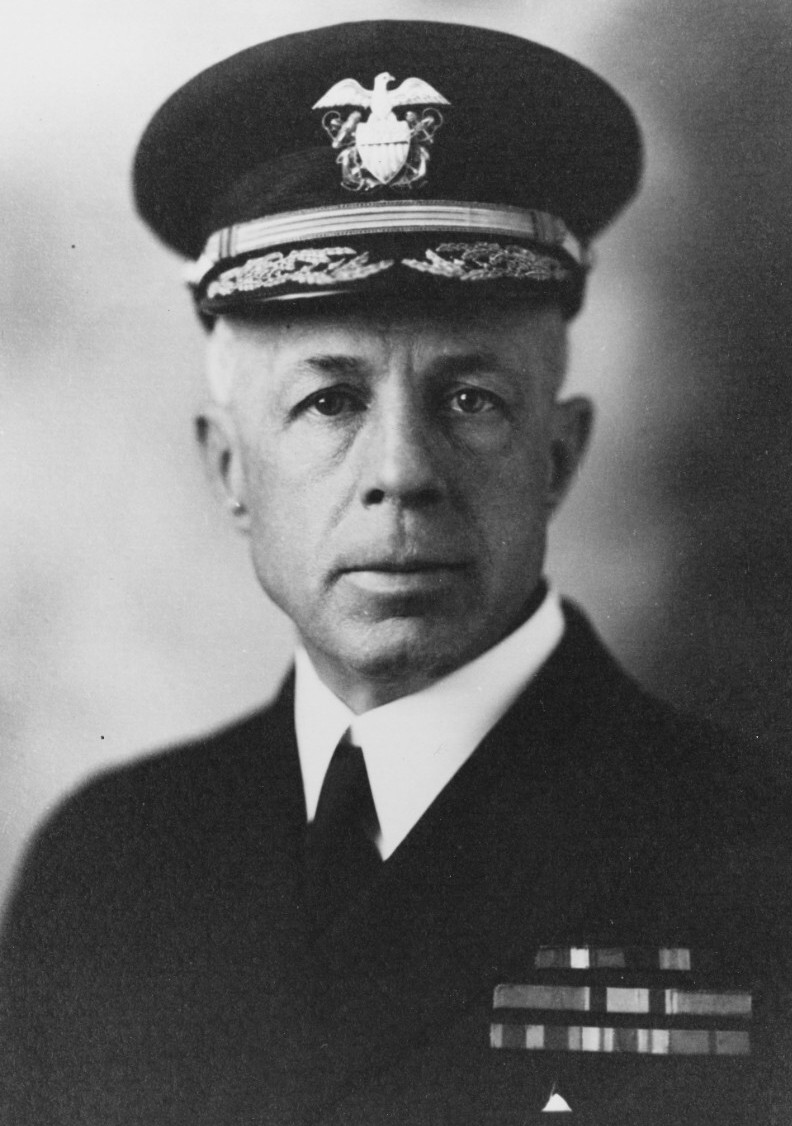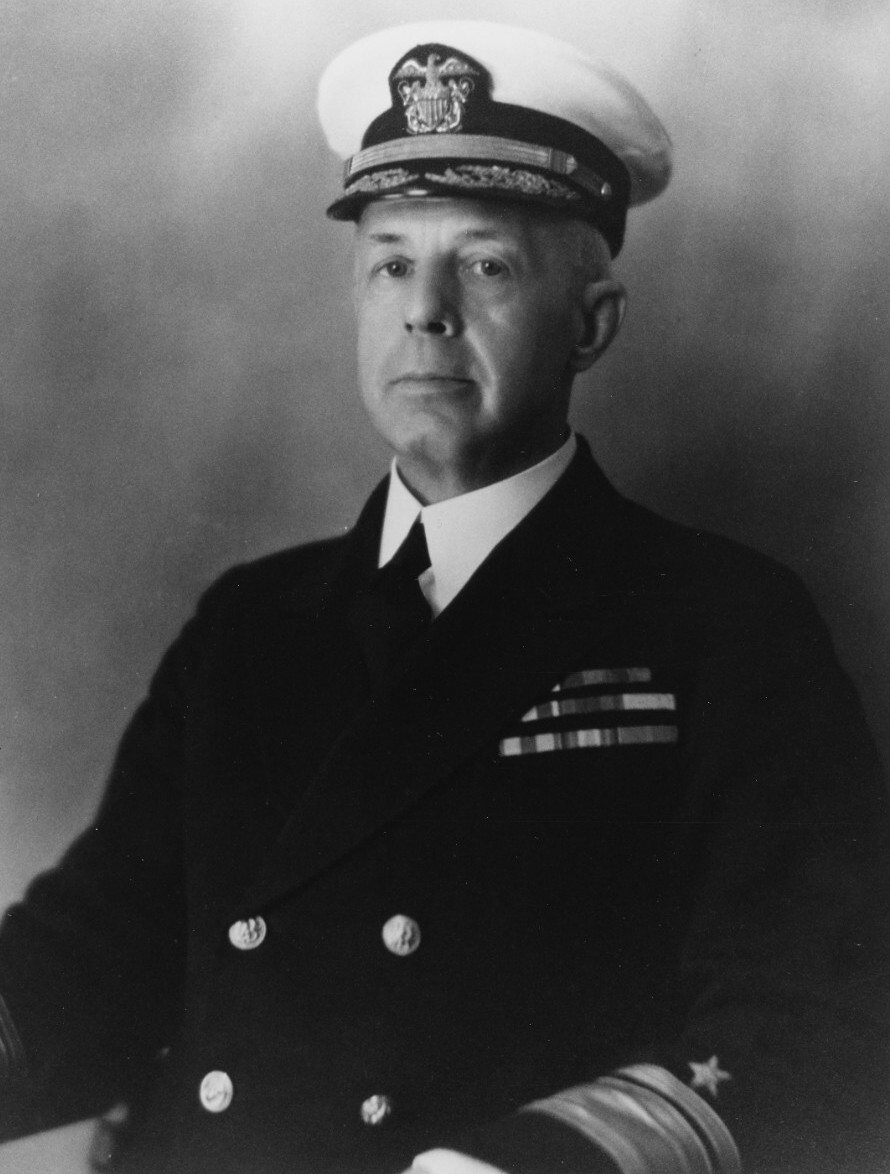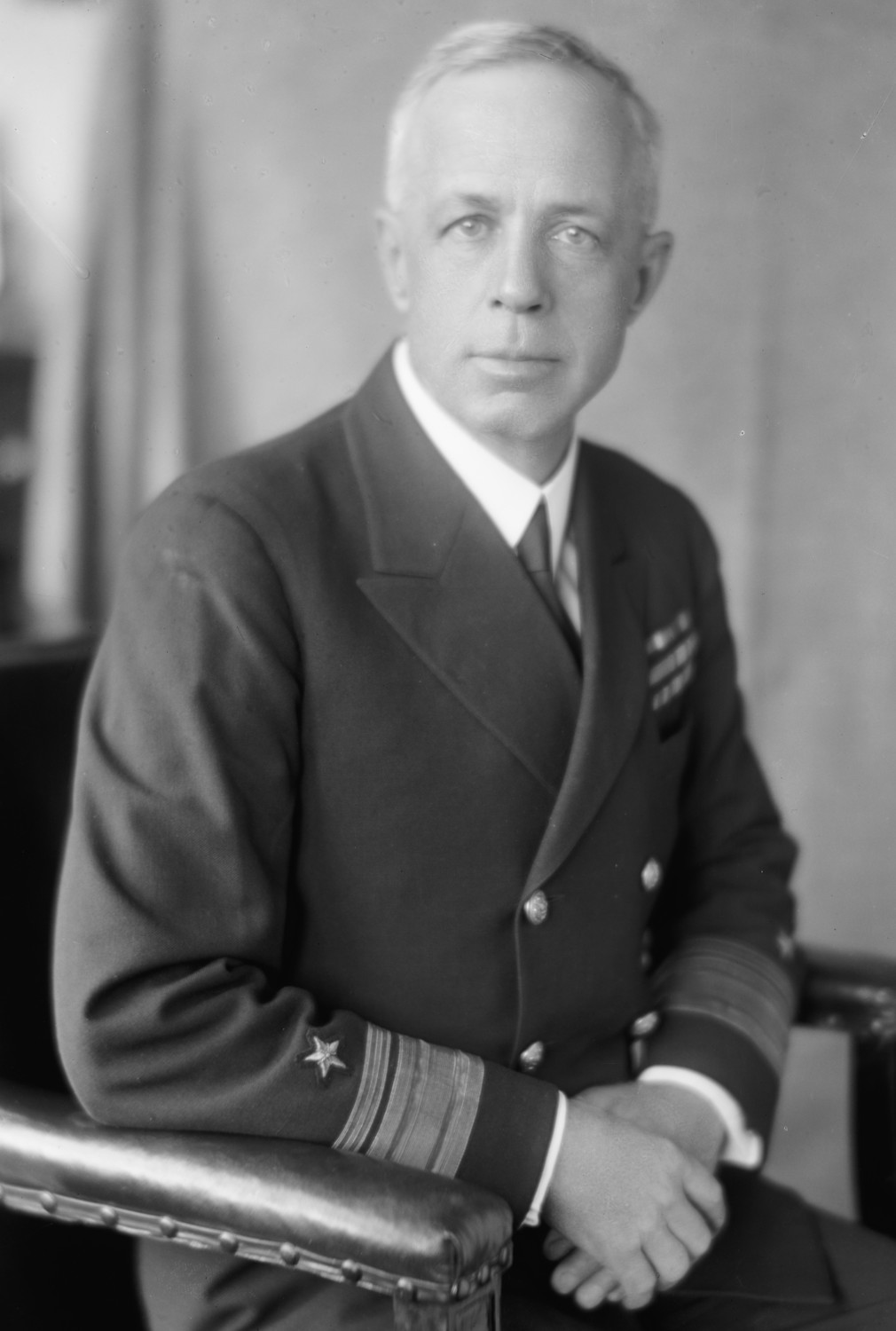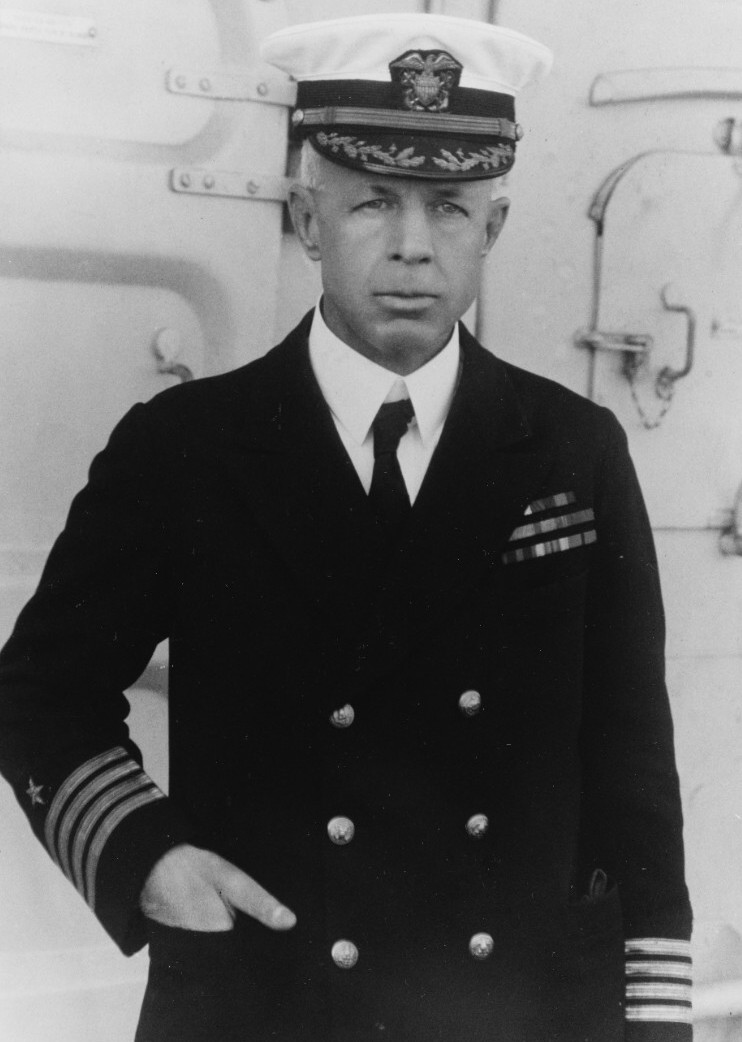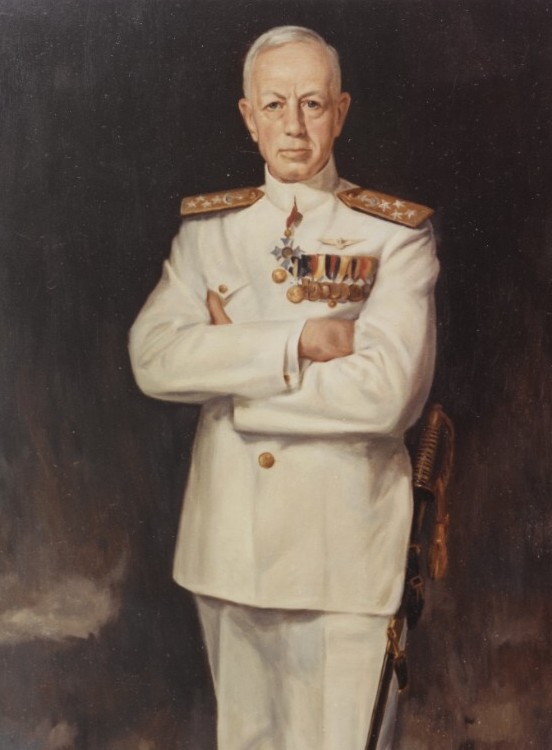 |
||
|
HOME
|
US Navy -
ships
|
US Navy - air
units
|
USMC - air
units
|
International
Navies
|
Weapon Systems
|
Special Reports |
||
|
US Navy - Guided Missile Cruiser DLG 17 / CG 17 - USS Harry E. Yarnell |
||
|
||
| 03/24 | ||
|
Type,
class: Guided Missile Cruiser (CG); Leahy
class / built as DLG 17 / redesignated CG 17 on June 30, 1975 Builder: Bath Iron Works, Bath, Maine, USA STATUS: Awarded: November 7, 1958 Laid down: May 31, 1960 (as DLG 17) Launched: December 9, 1961 (as DLG 17) Commissioned: February 2, 1963 (as DLG 17) Redesignated CG 17: June 30, 1975 Decommissioned: October 29, 1993 Fate: sold for scrap / scrapping completed on April 17, 2002 Namesake: Admiral Harry Ervin Yarnell (1875-1959) Ships Motto: ? Technical Data: see: INFO > Leahy class Guided Missile Cruiser - CG |
||
| images | ||
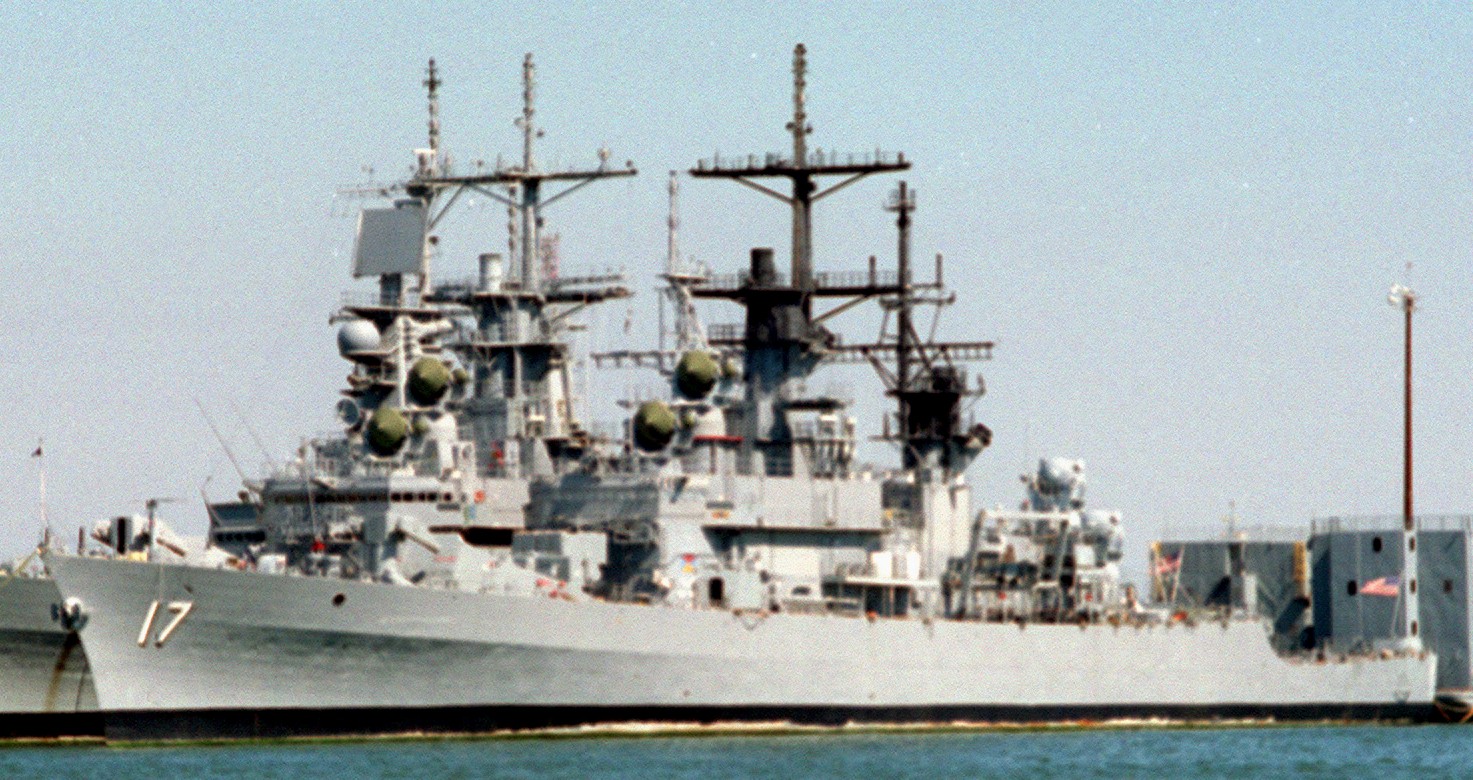 prior to decommissioning at Naval Station Norfolk, Virginia - October 1993 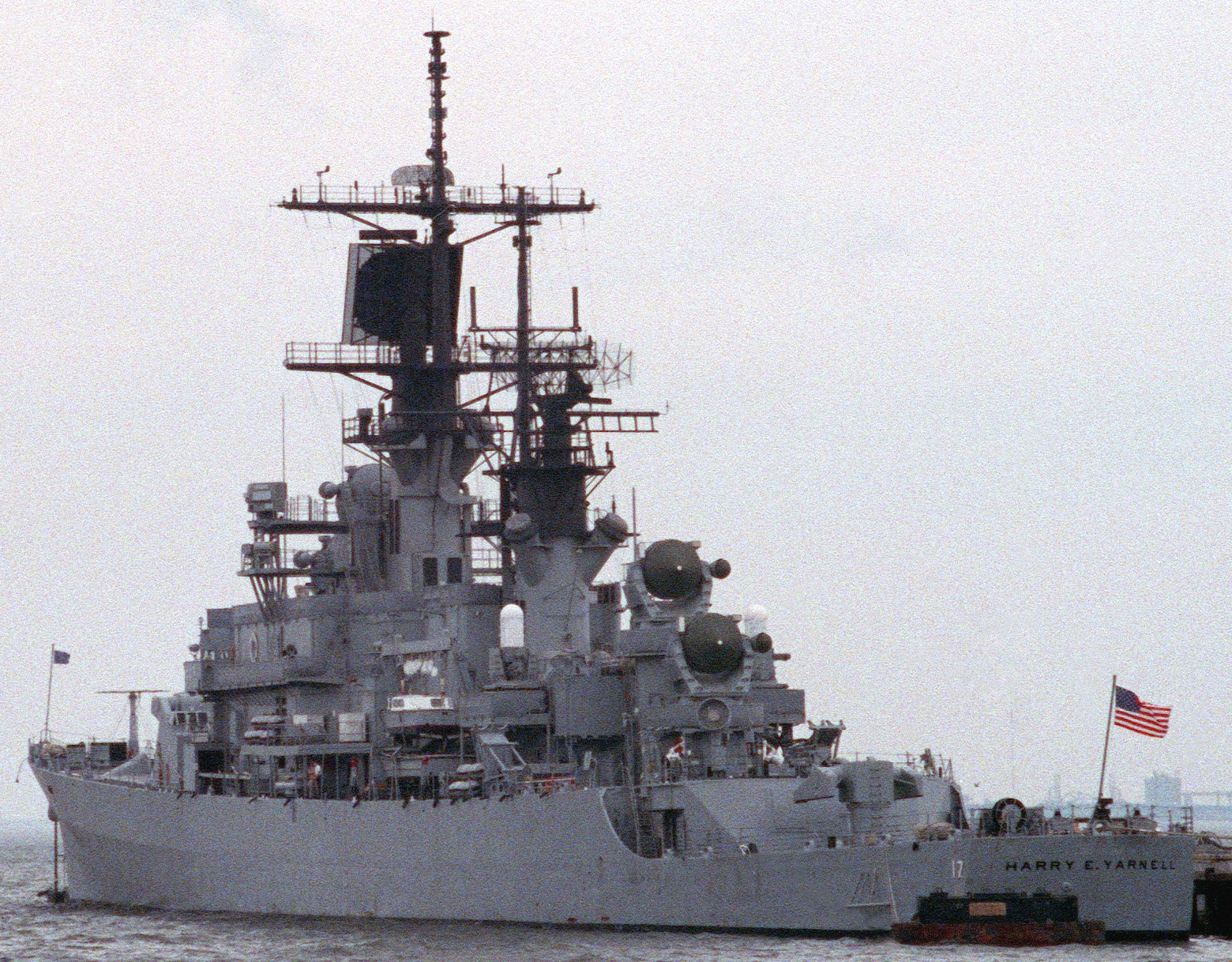 Naval Station Norfolk, Virginia - 1991 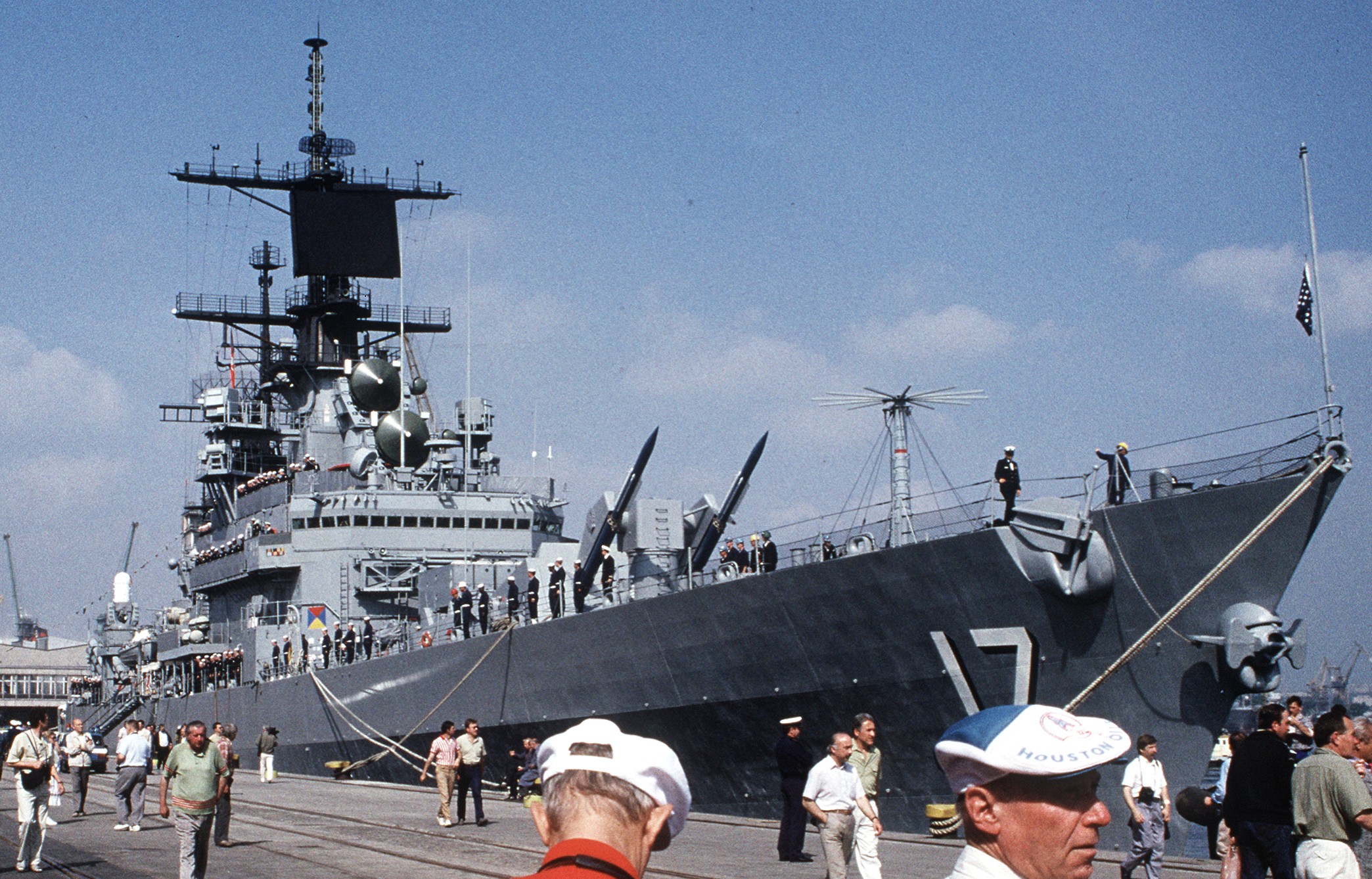 during BALTOPS 1990 - Gdynia, Poland - June 1990 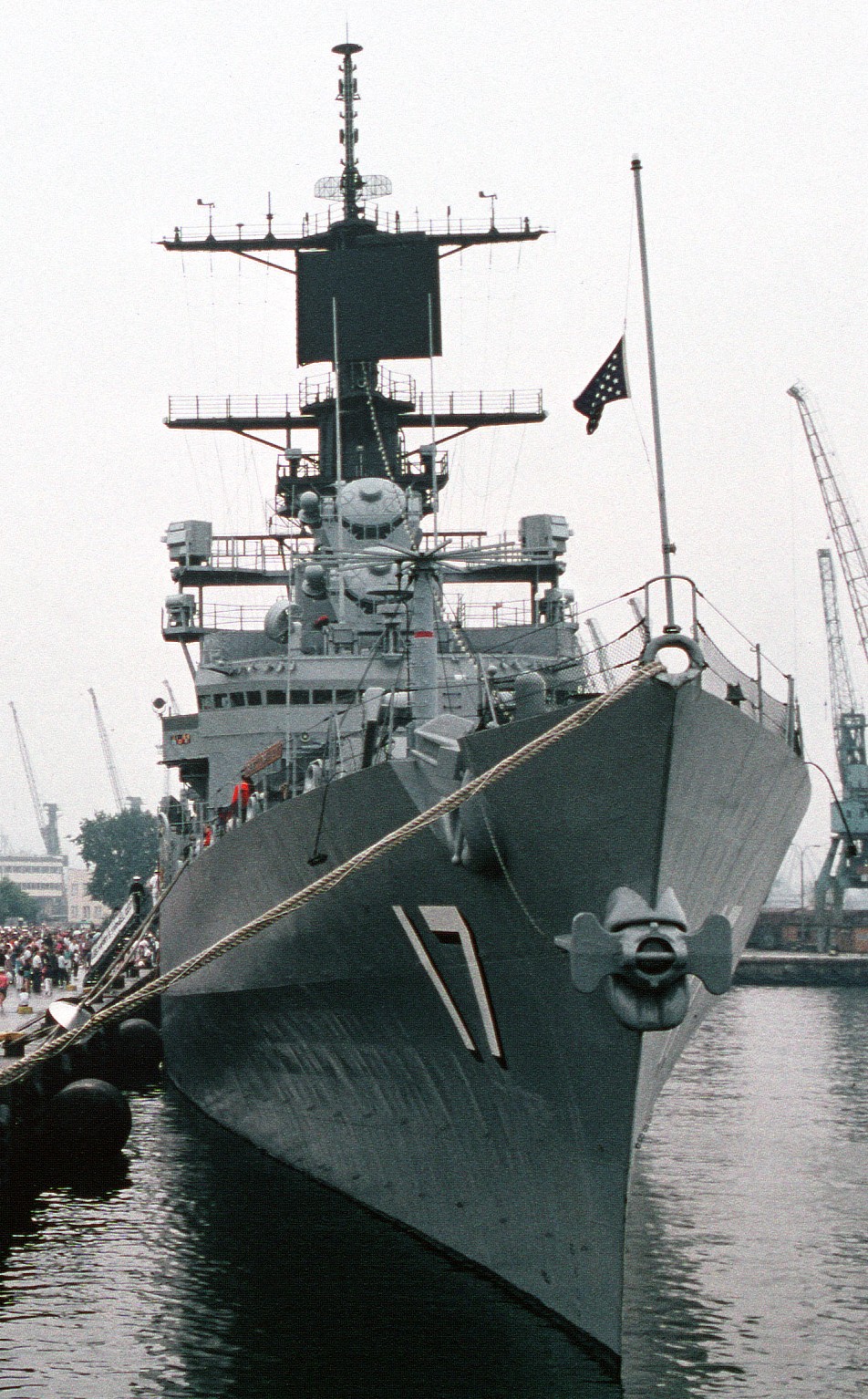 during BALTOPS 1990 - Gdynia, Poland - June 1990 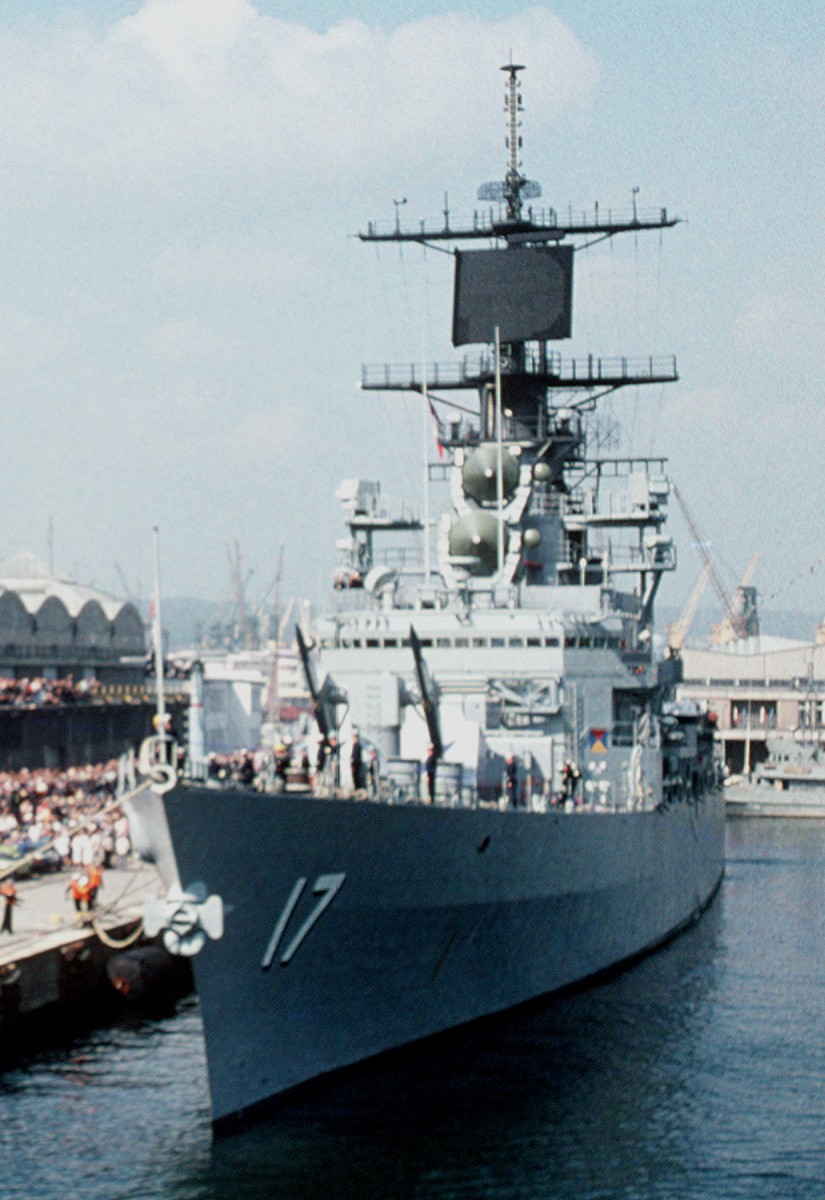 during BALTOPS 1990 - Gdynia, Poland - June 1990 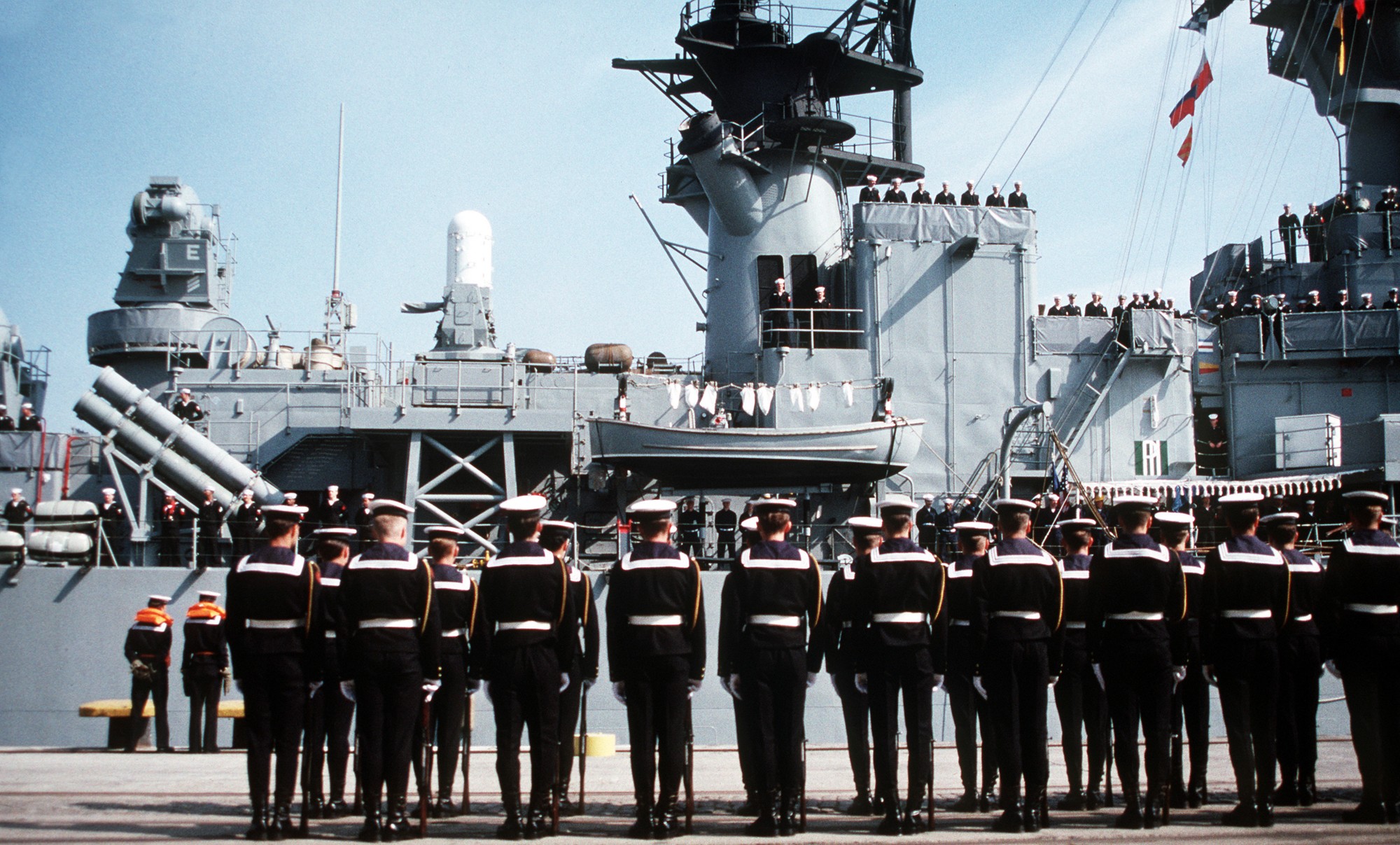 during BALTOPS 1990 - Gdynia, Poland - June 1990 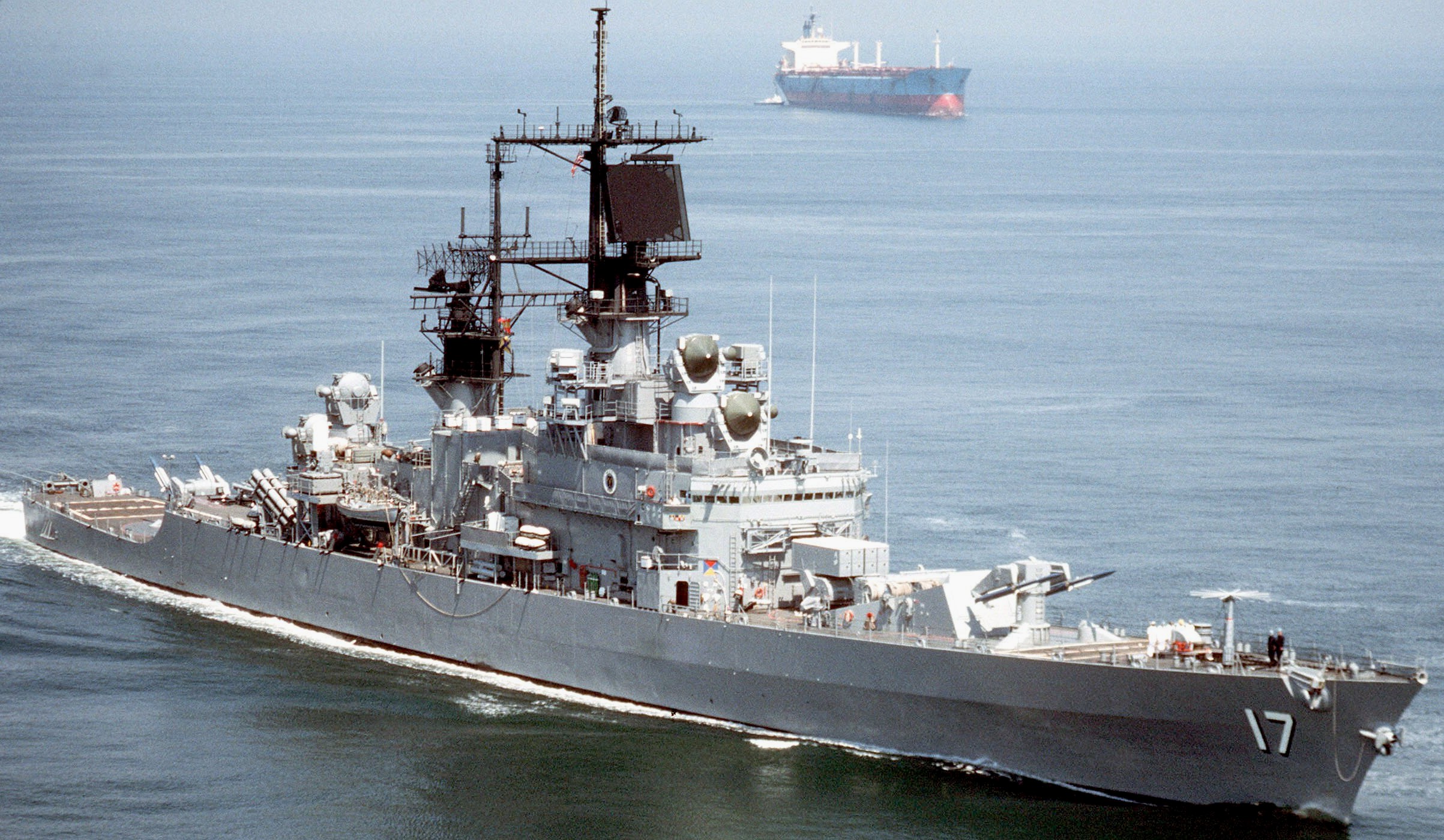 Atlantic Ocean - May 1990 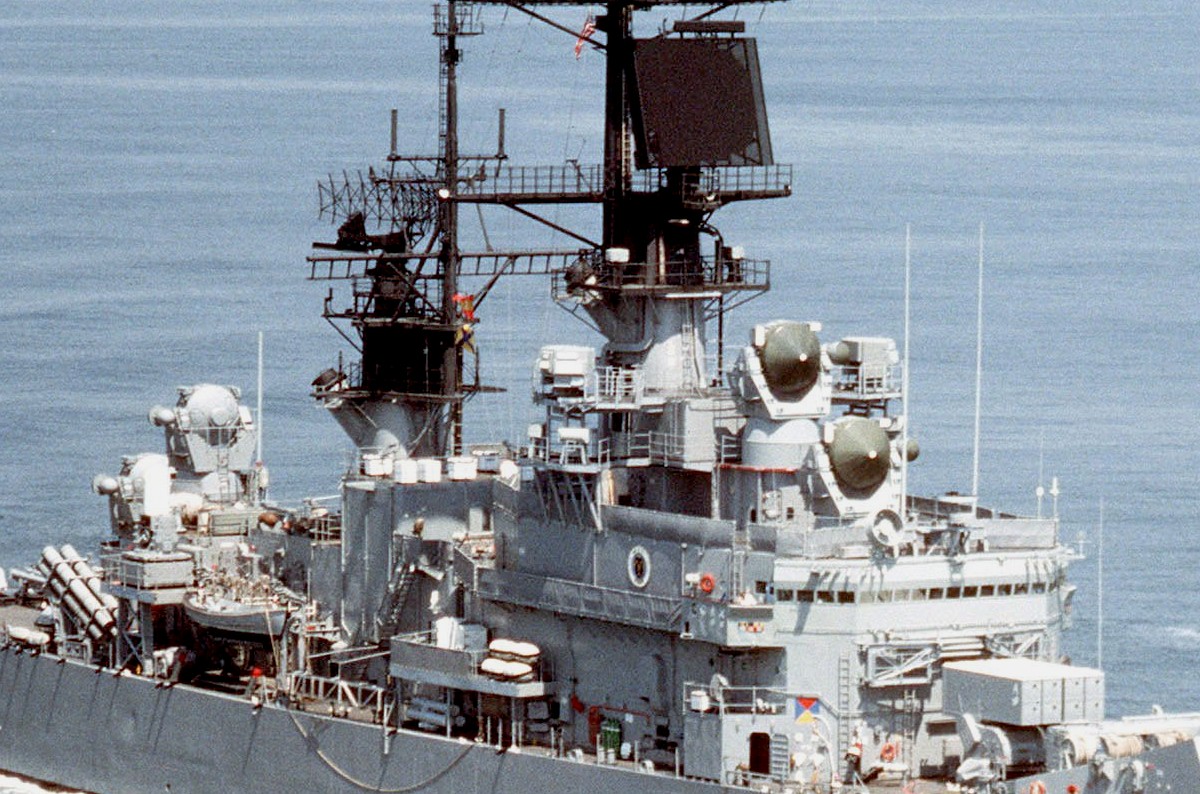 cutout: antenna and armament details 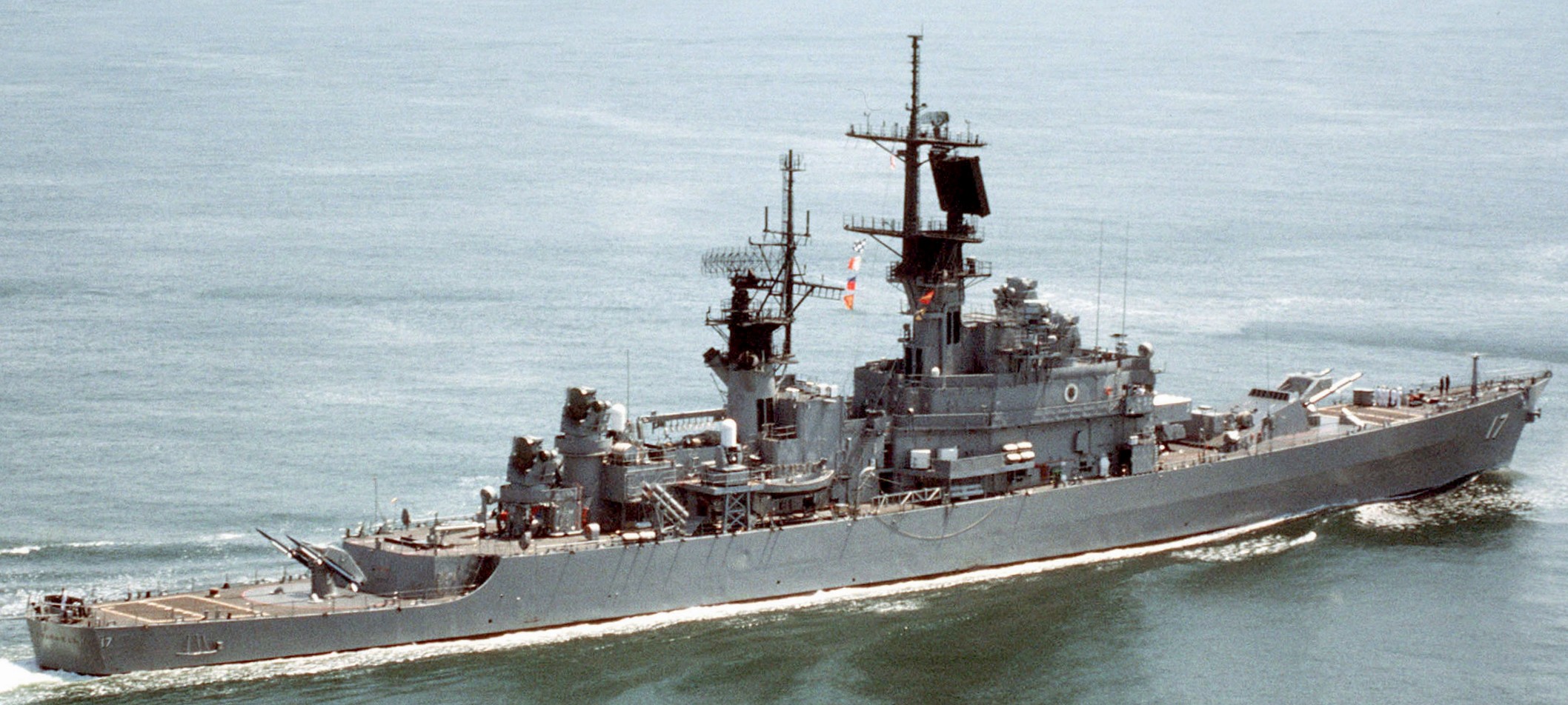 Atlantic Ocean - May 1990 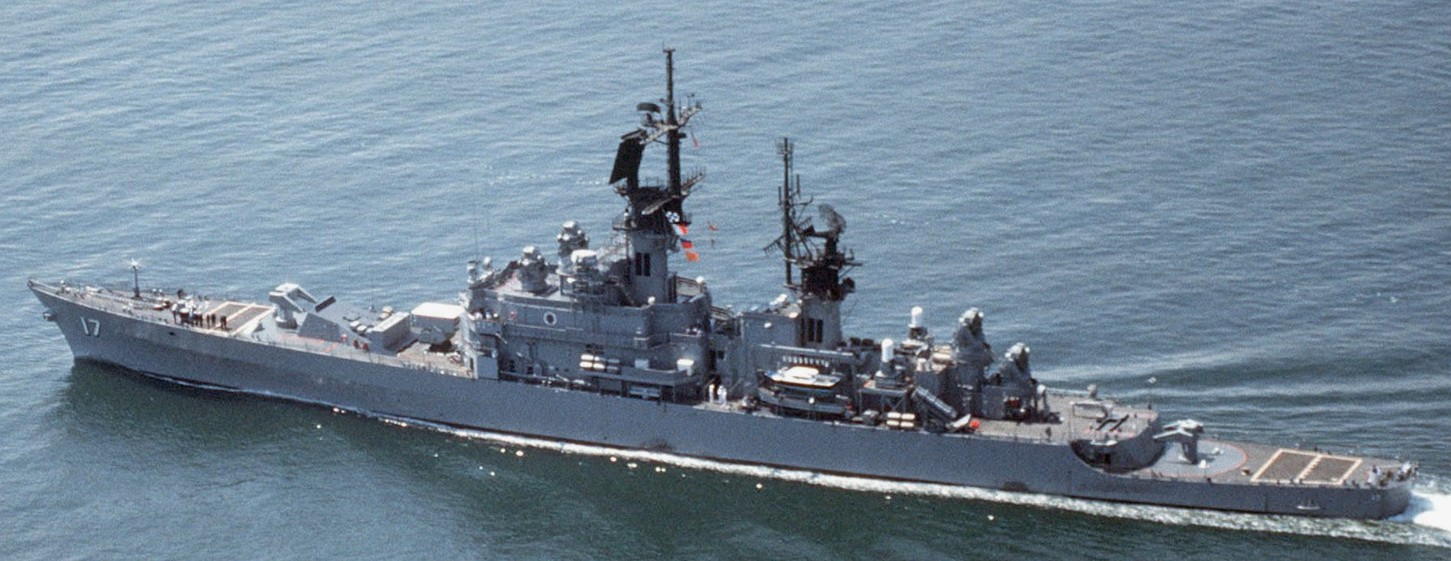 Atlantic Ocean - May 1990 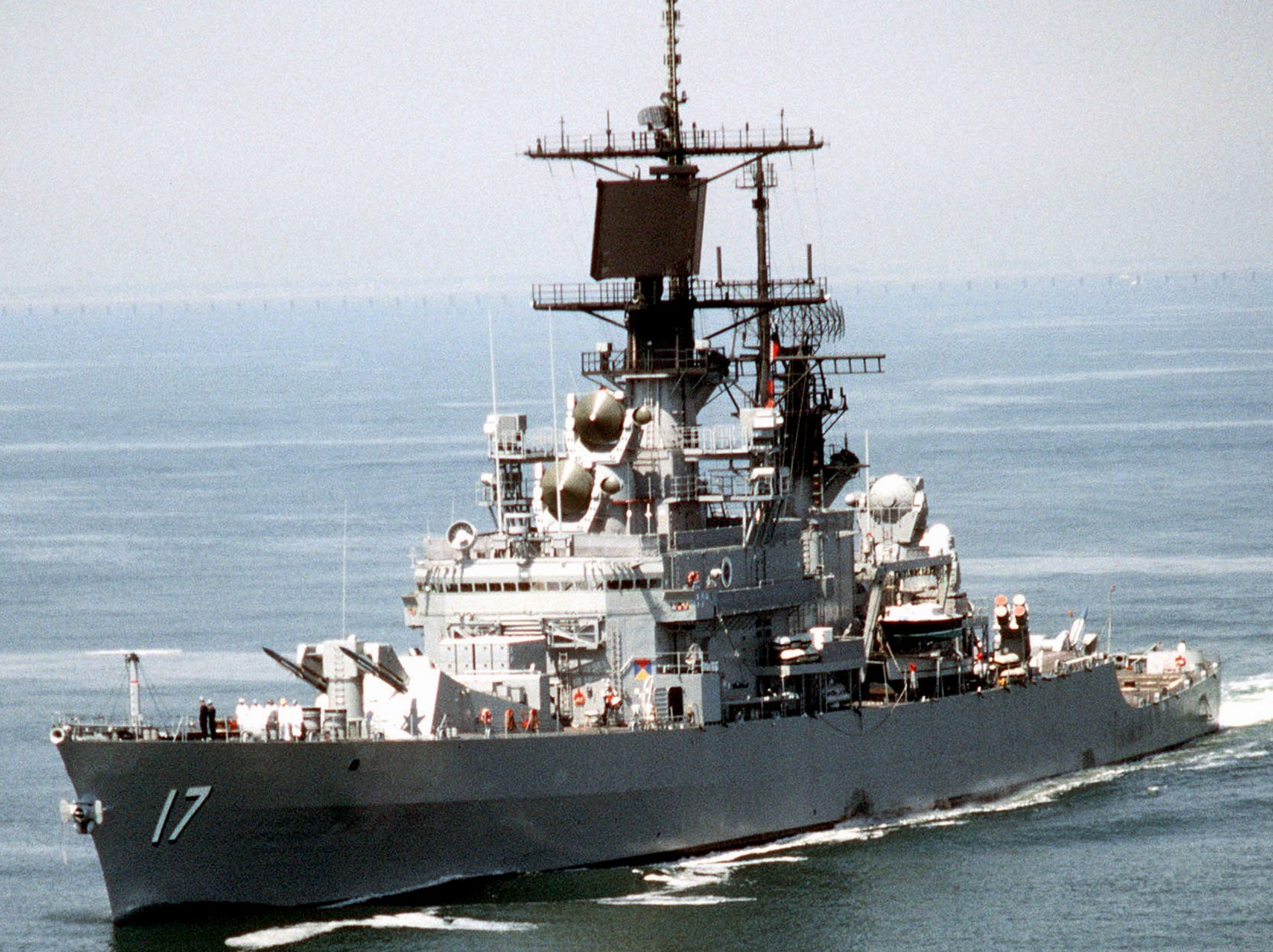 Atlantic Ocean - May 1990 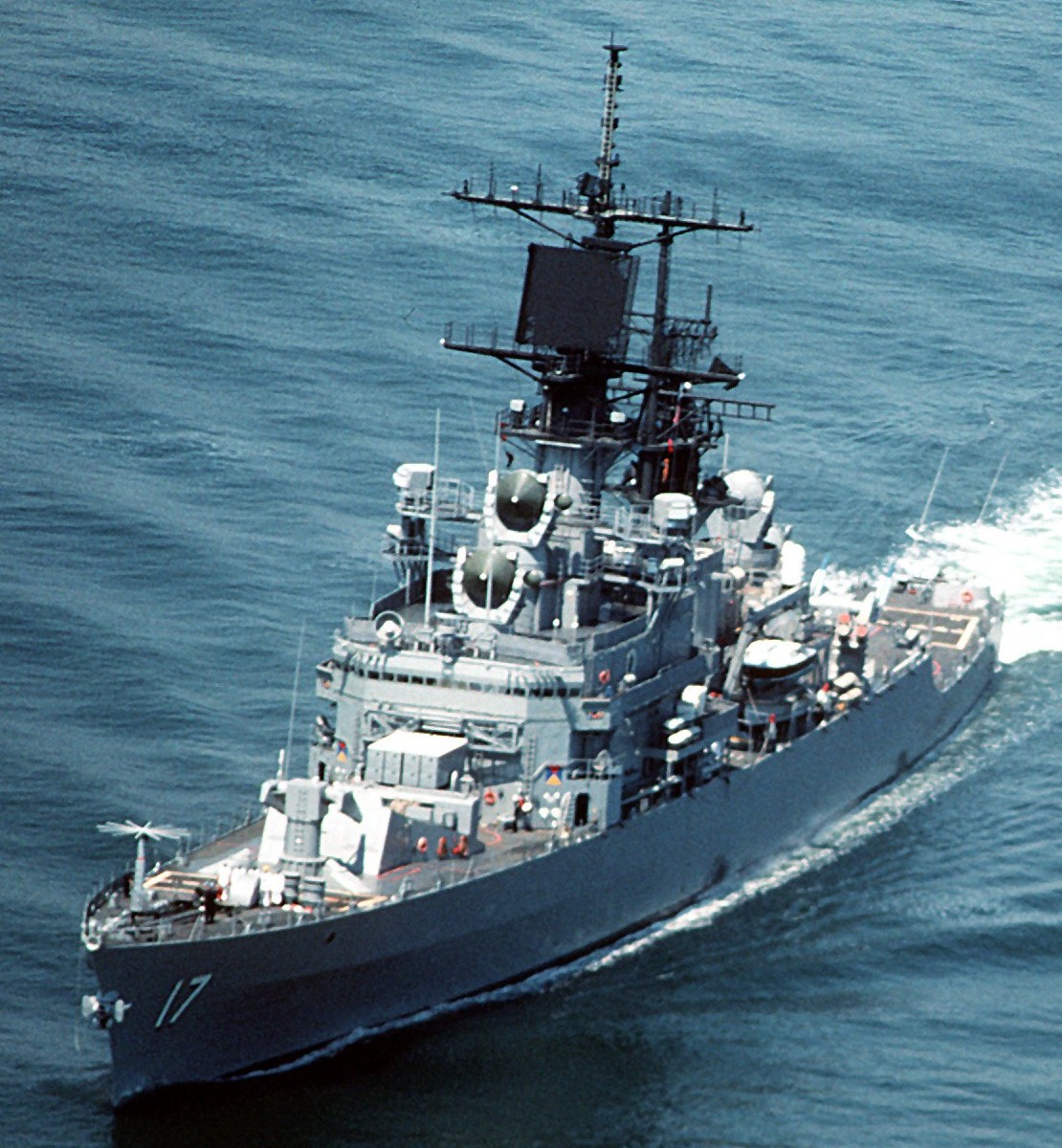 Atlantic Ocean - May 1990 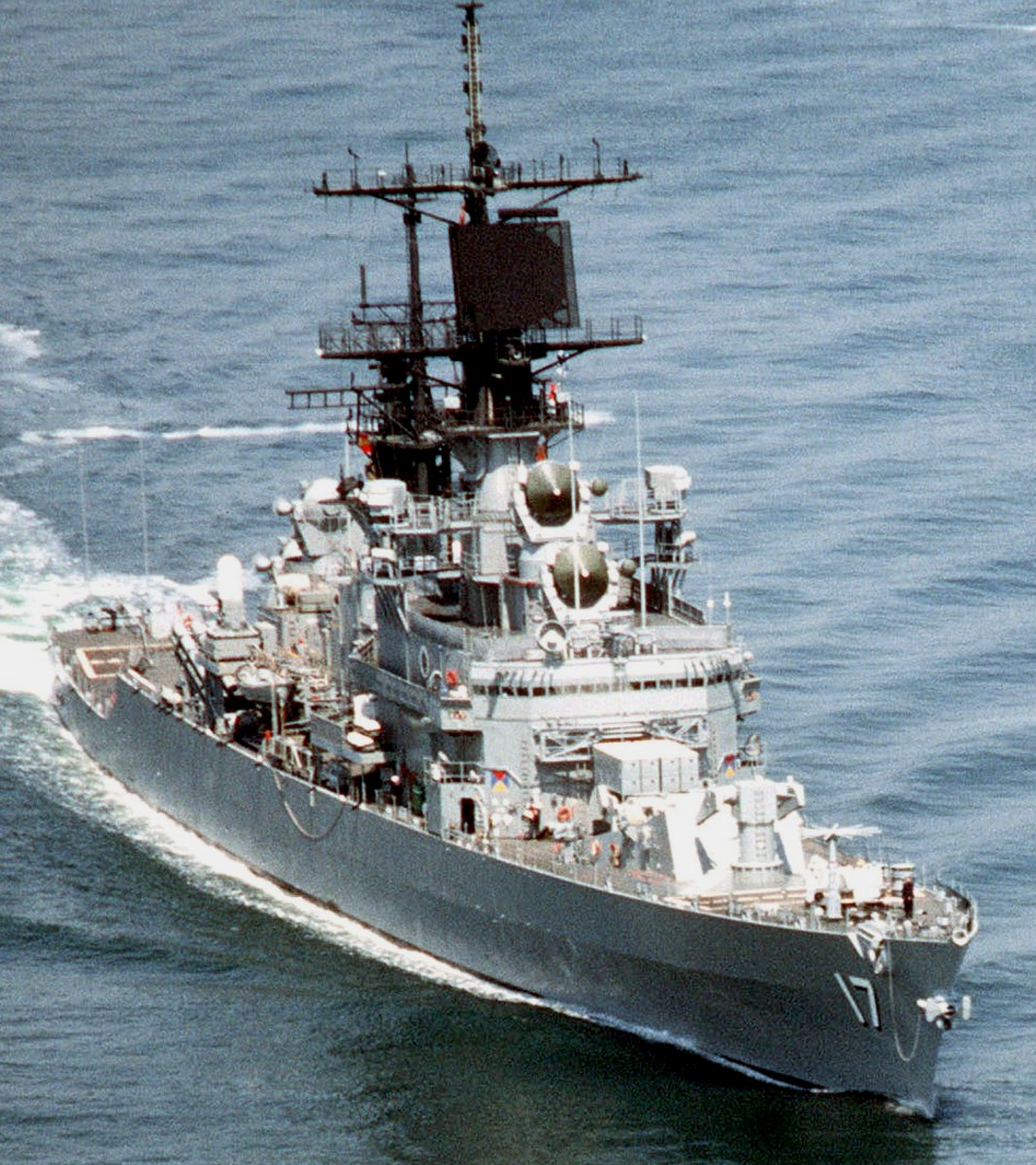 Atlantic Ocean - May 1990 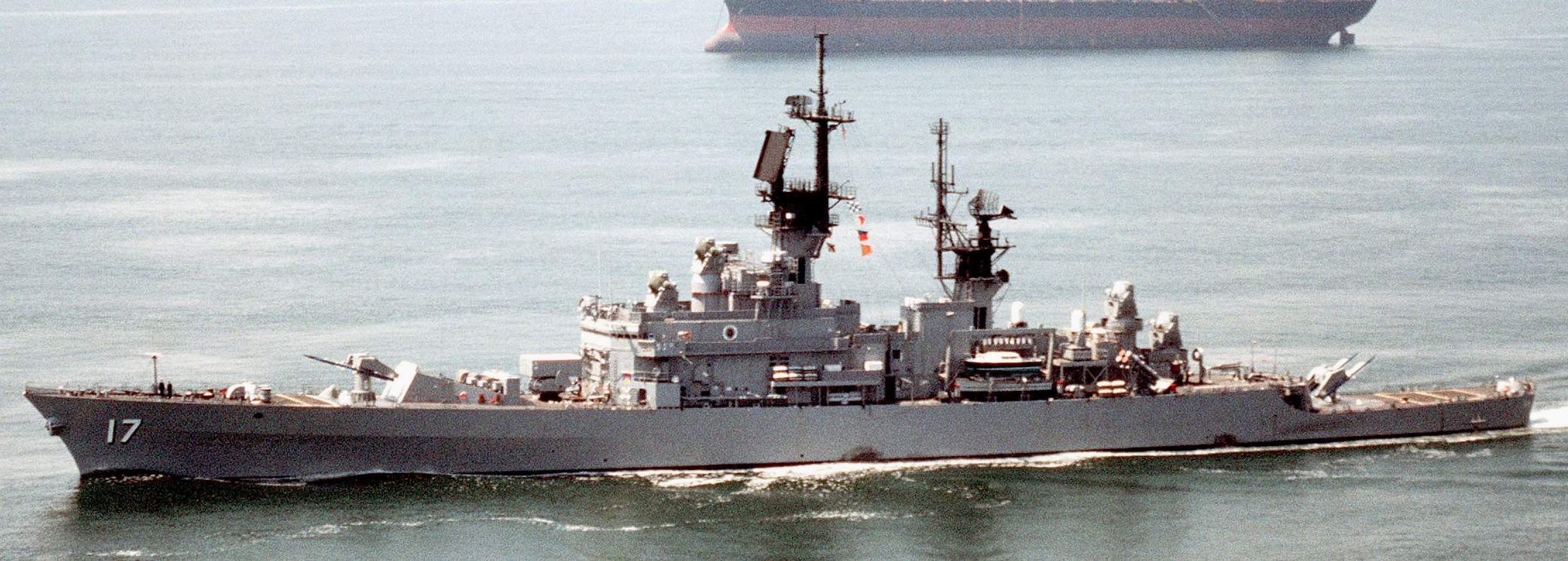 Atlantic Ocean - May 1990 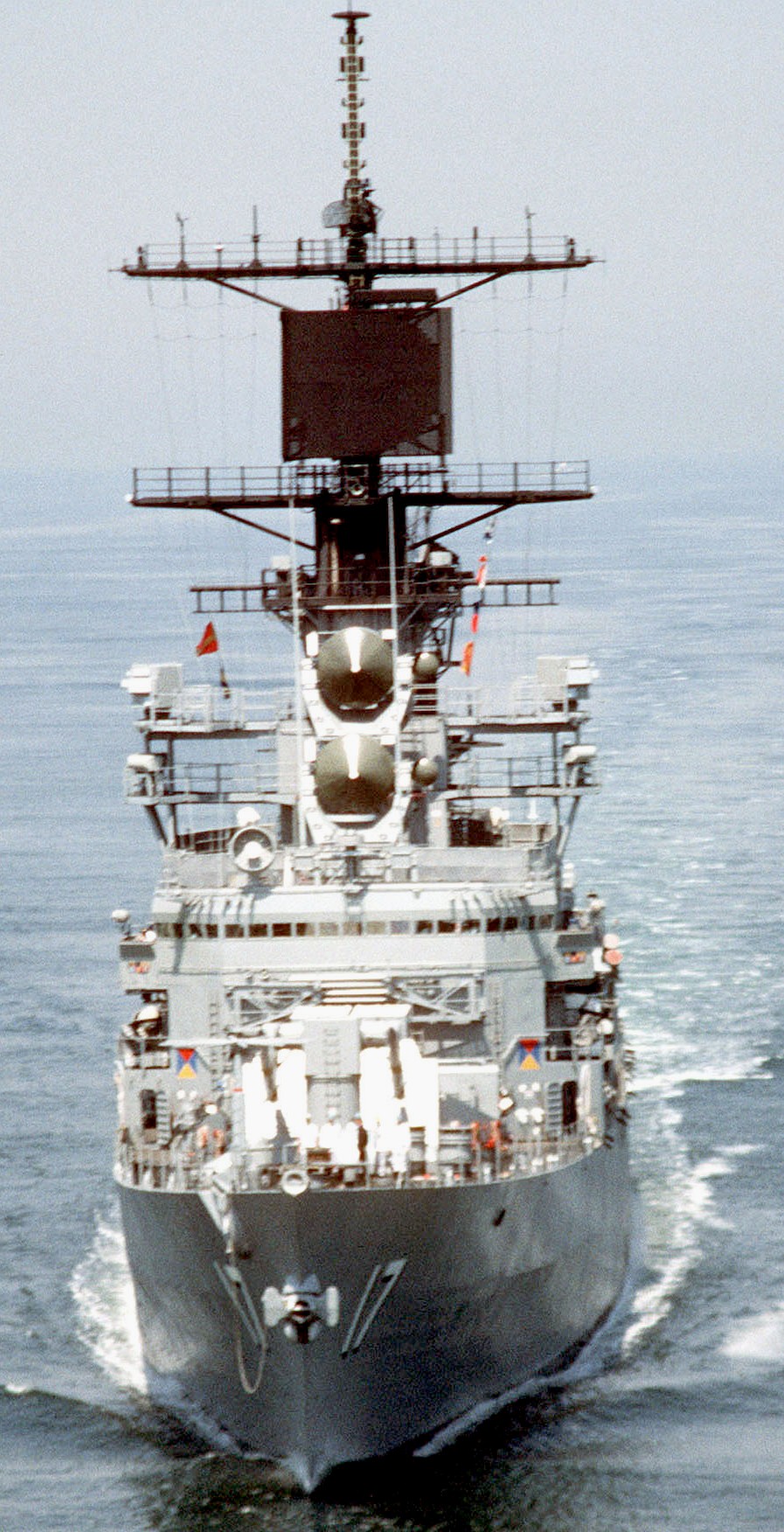 Atlantic Ocean - May 1990 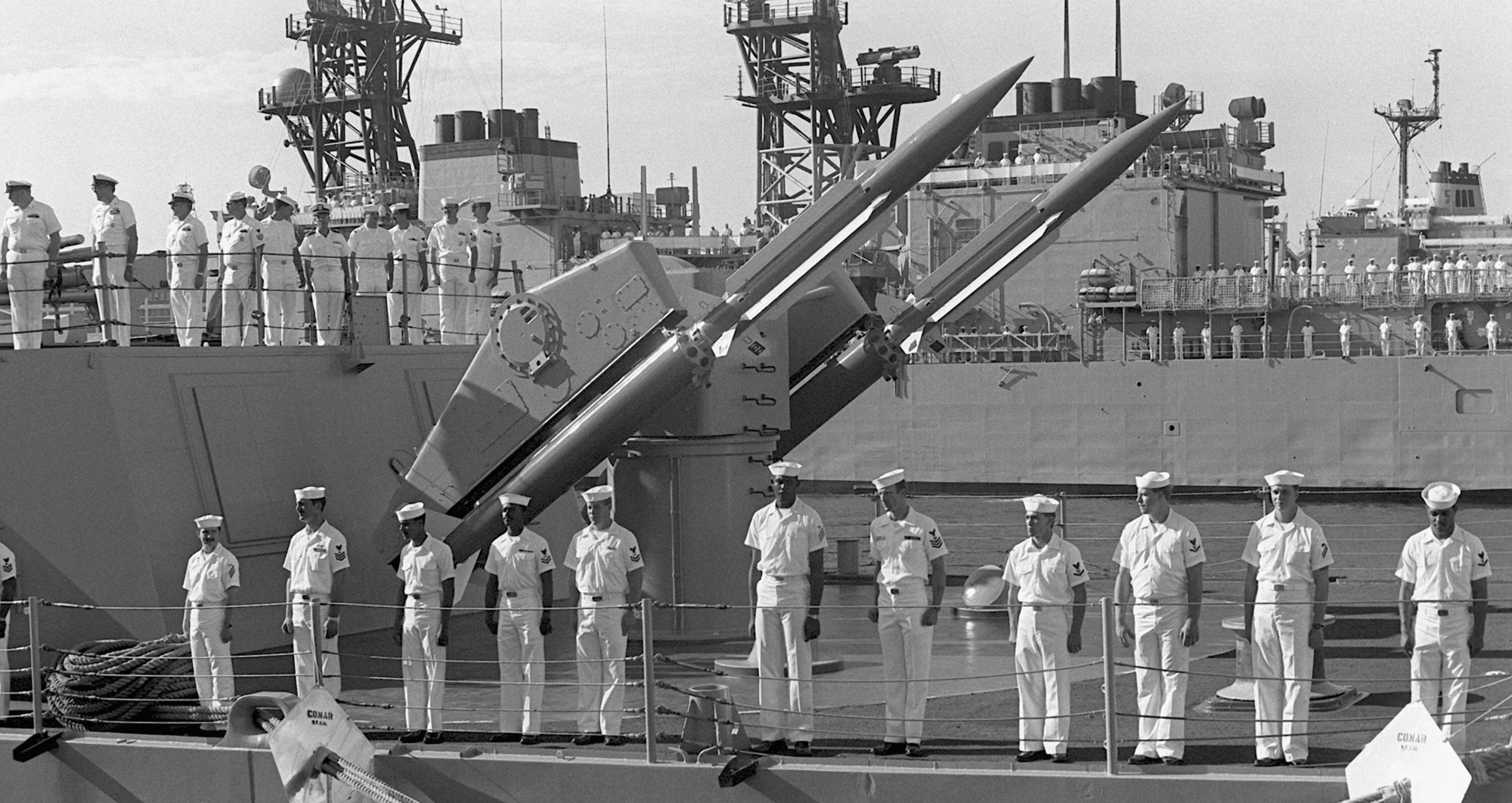 Naval Station Norfolk, Virginia - June 1989 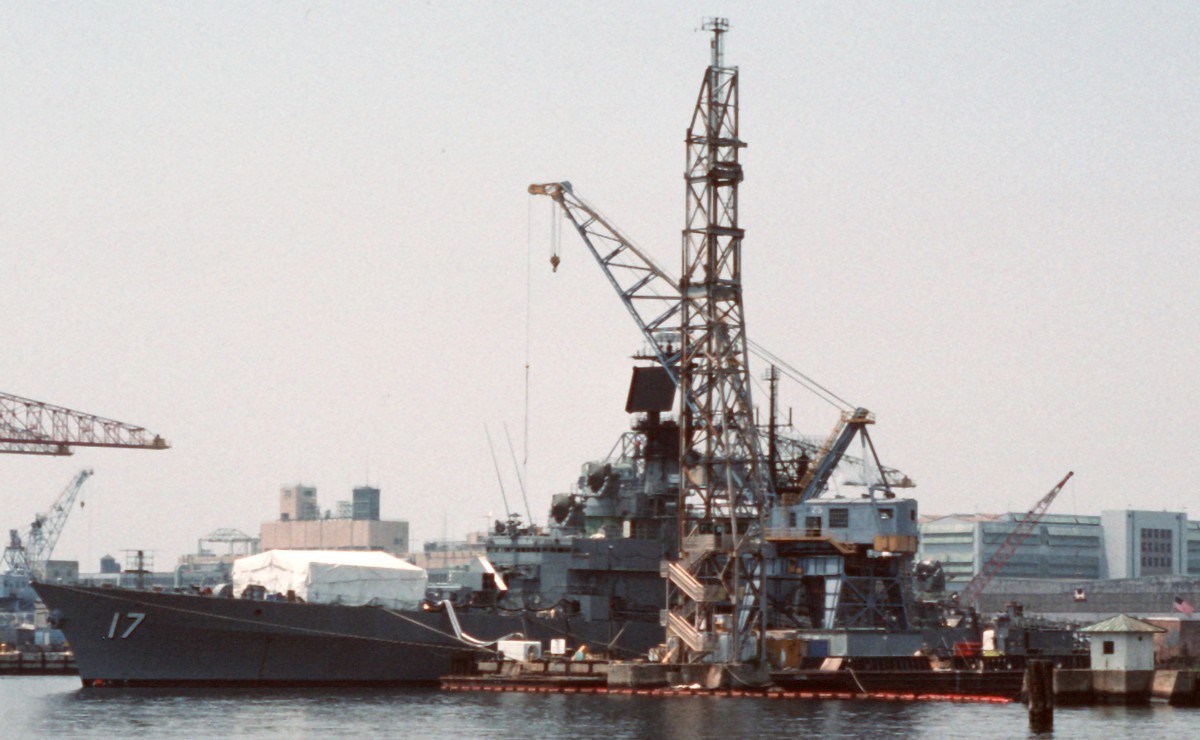 Naval Station Norfolk, Virginia - 1988 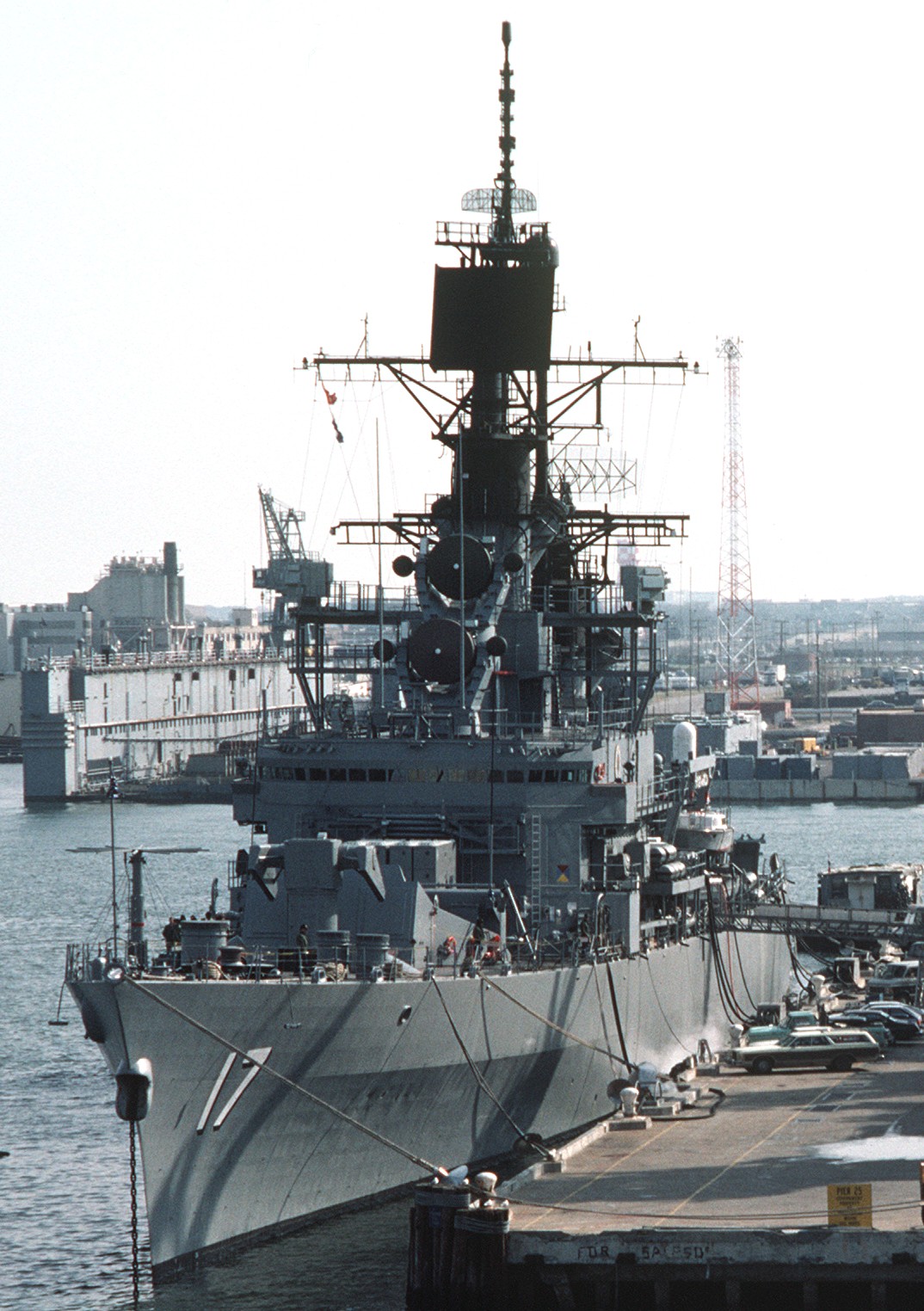 Naval Station Norfolk, Virginia - February 1986 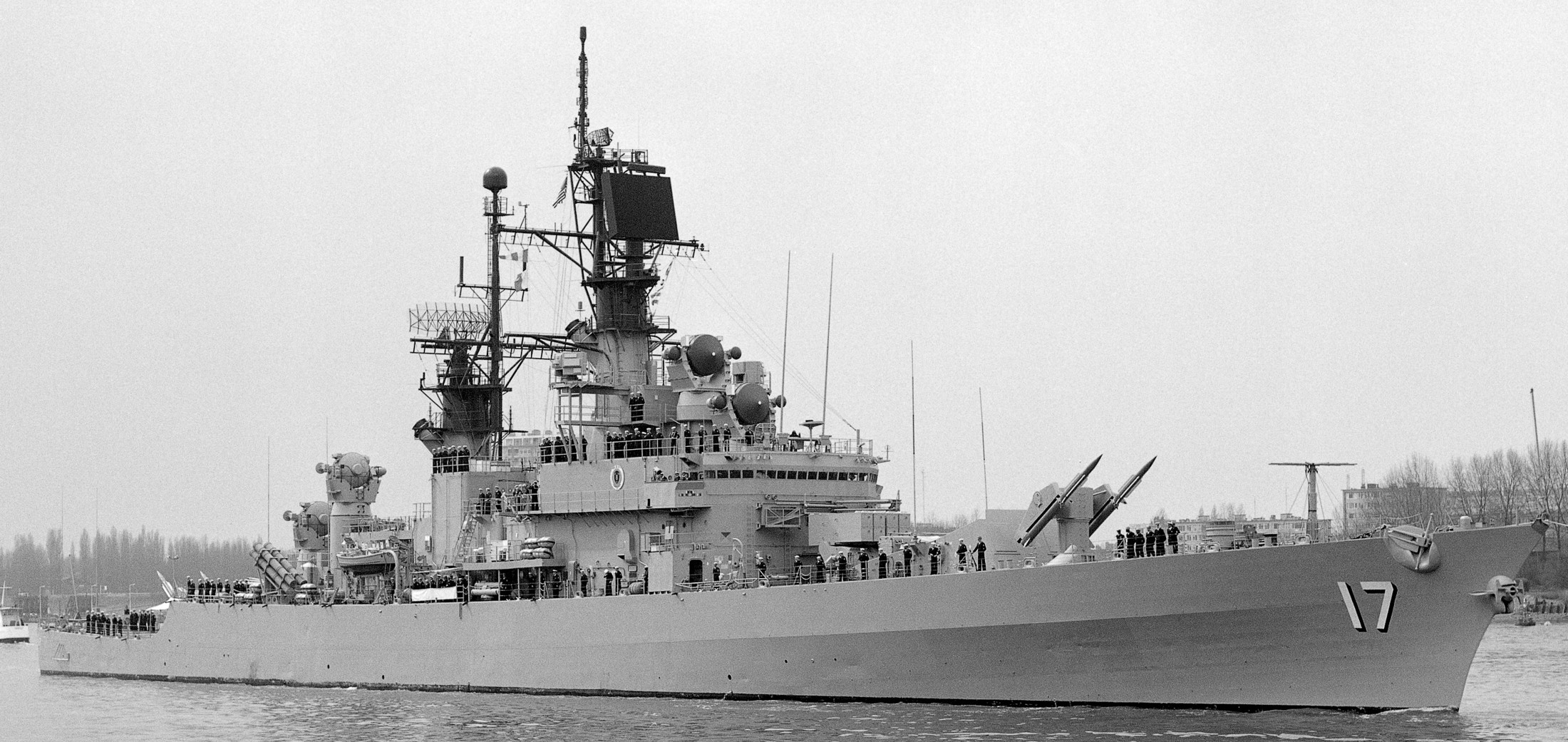 Antwerp, Belgium - March 1984 (Leo van Ginderen image via USDOD)  Antwerp, Belgium - March 1984 (Leo van Ginderen image via USDOD)  Antwerp, Belgium - March 1984 (Leo van Ginderen image via USDOD) DLG 17 (1963-75) 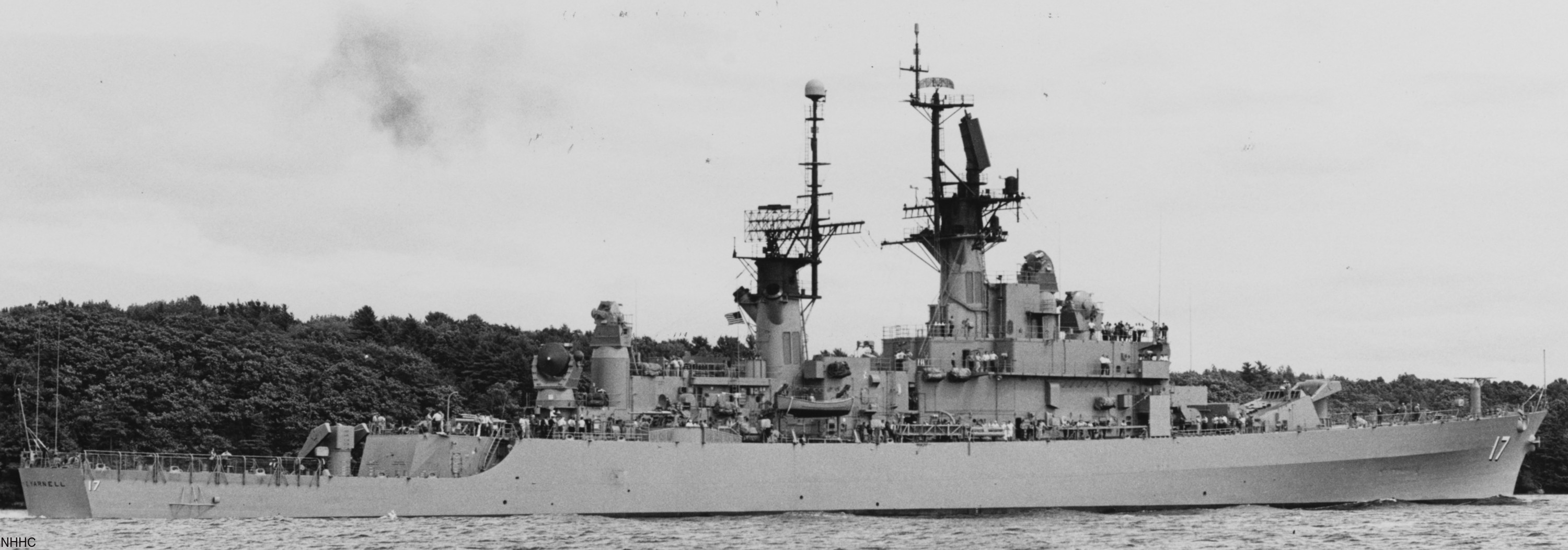 off Bath, Maine - June 1969 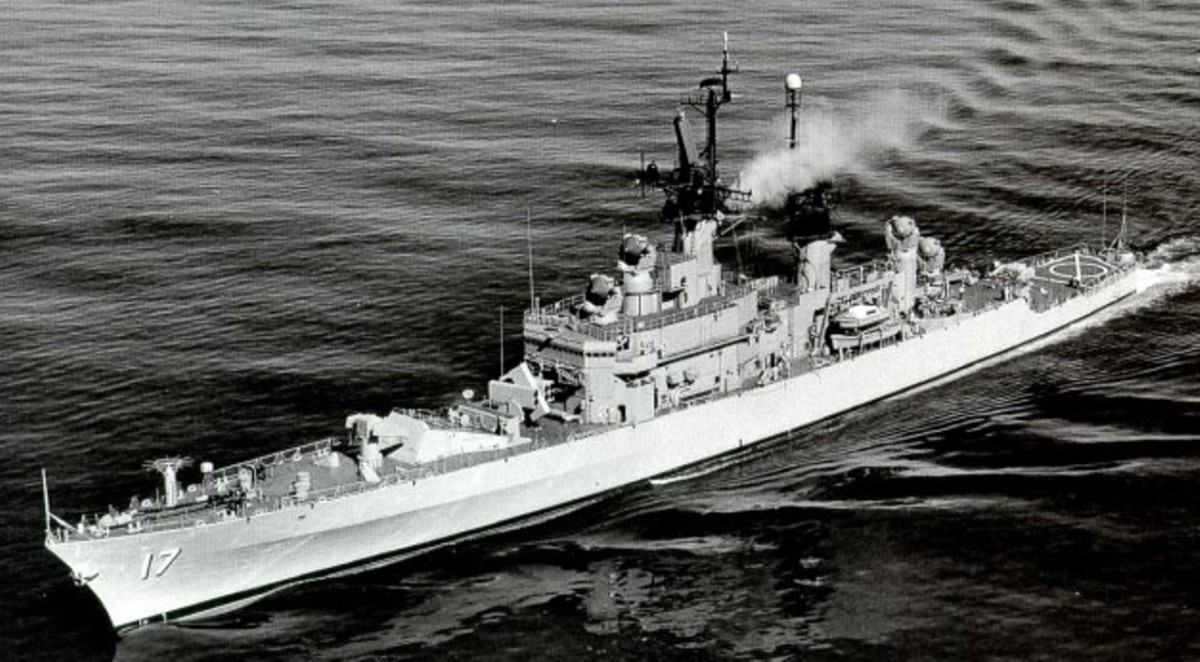 trials after overhaul - 1969 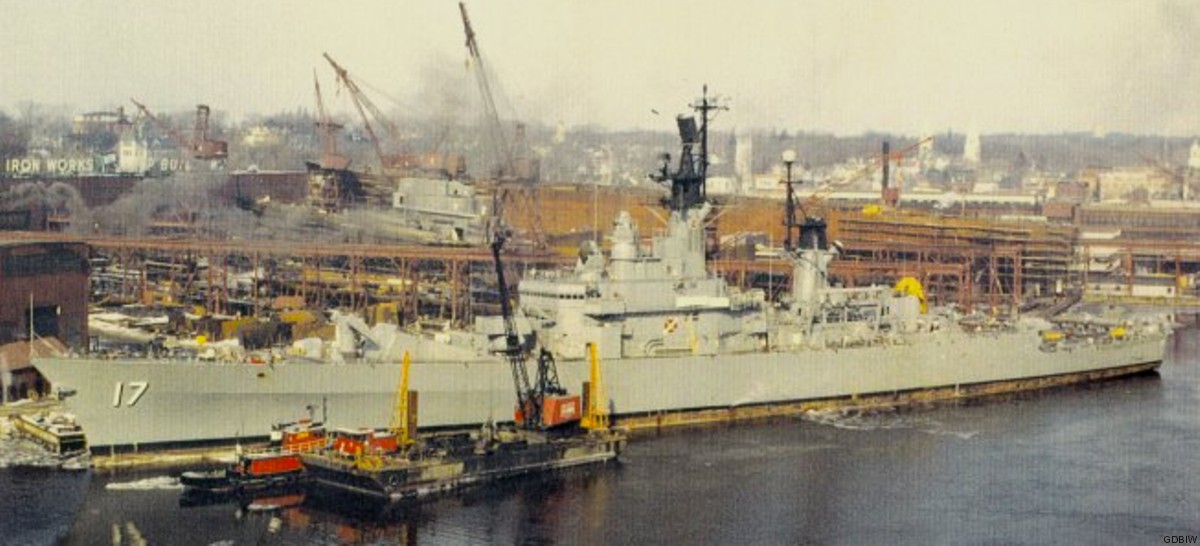 overhaul at Bath Iron Works, Maine - March 1968 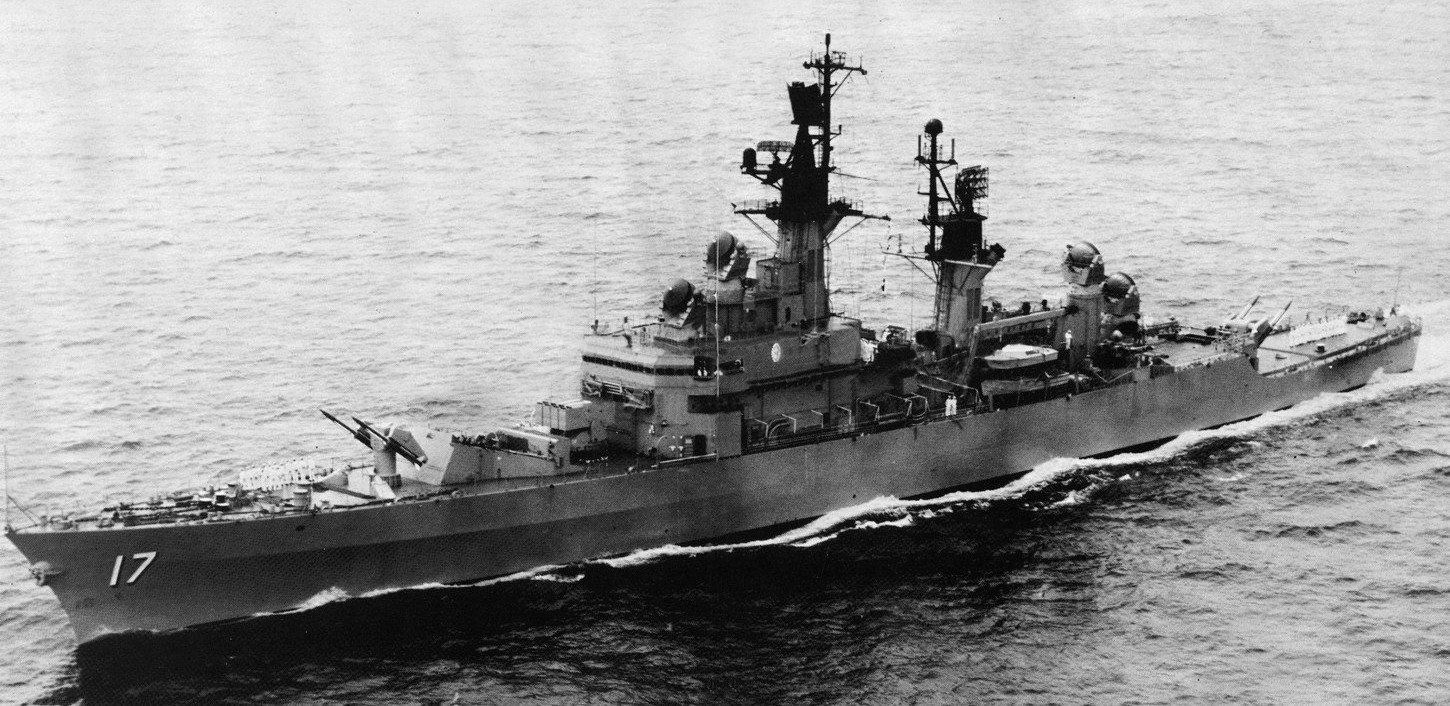 1967 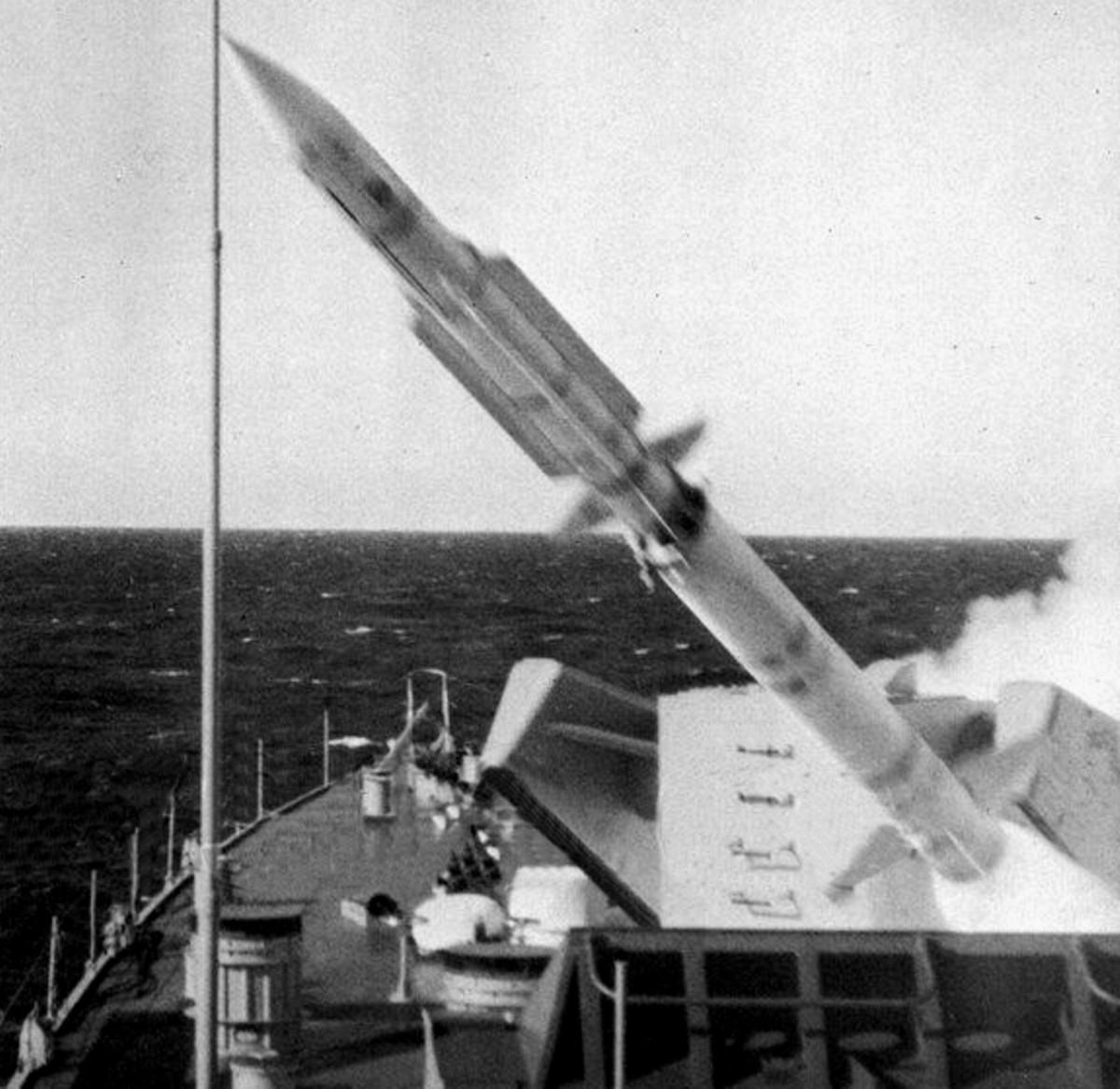 RIM-2 Terrier SAM missile firing - 1967 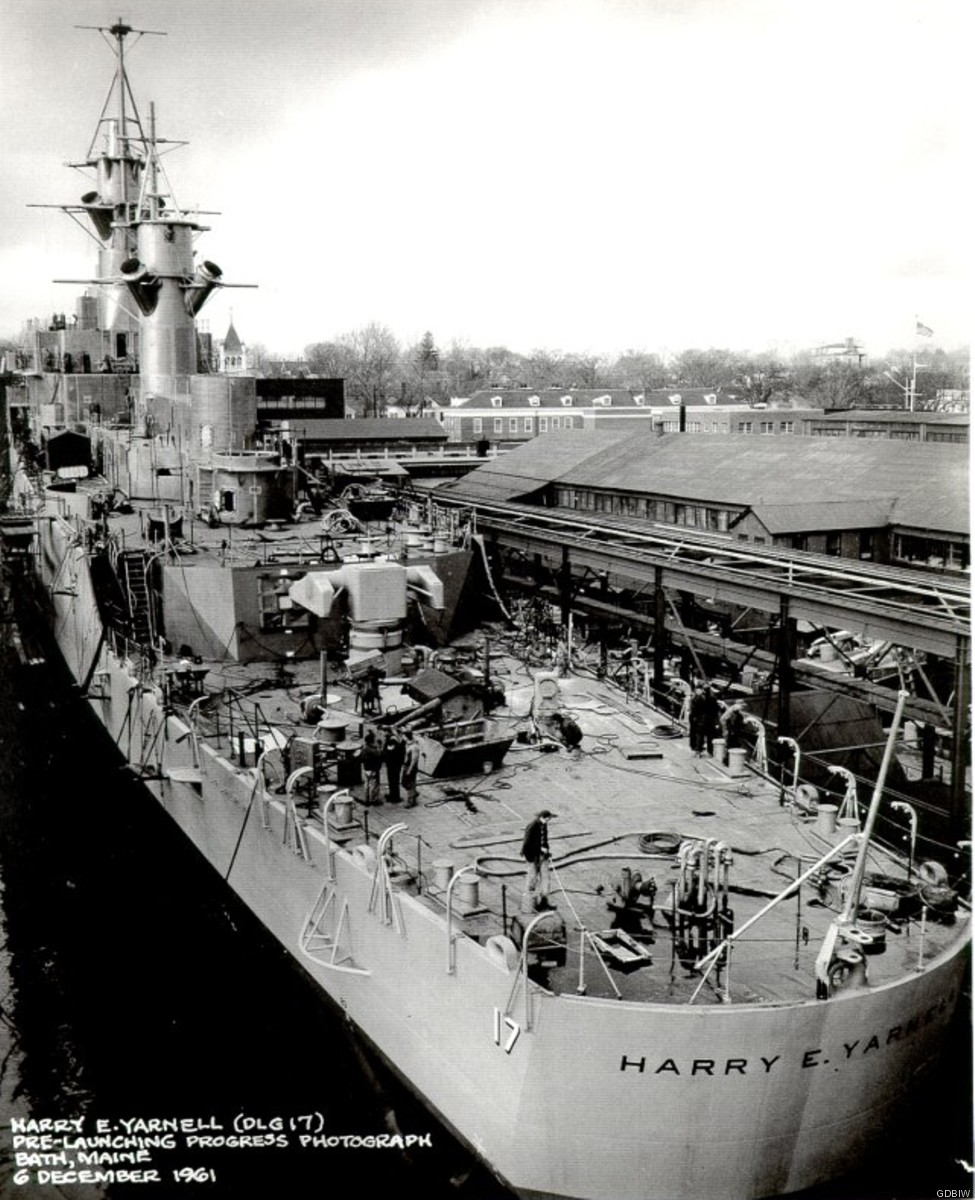 prior to her launching - December 1961 |
||
|
USS Harry E. Yarnell (DLG 17 / CG 17): USS Harry E. Yarnell (DLG/CG-17), a Leahy-class guided missile cruiser, was a ship of the United States Navy named in honor of Admiral Harry E. Yarnell (1875-1959). Originally called a "destroyer leader" or frigate, in 1975 she was redesignated a cruiser in the Navy's ship reclassification. Harry E. Yarnell was launched 9 December 1961 by the Bath Iron Works, Bath, Maine; sponsored by Mrs. Philip Yarnell, widow of the late Admiral Yarnell; and commissioned 2 February 1963 at the Boston Naval Shipyard, Captain Charles E. Nelson in command. Second of the "double-end" Leahy-class guided missile frigates to join America's sea-going arsenal, Harry E. Yarnell was equipped with Terrier surface-to-air missile launching tubes both fore and aft and ASROC anti-submarine missiles, as well as more conventional torpedo tubes and guns. Before taking her place in America's powerful deterrent force, the new ship was fitted out at Boston and received a grim reminder that even in peacetime the sea can be a powerful enemy. As she was out on trials, Yarnell was diverted 10 April 1963 to search for USS Thresher (SSN-593), the nuclear submarine later found on the bottom some 8,000 feet down. Quartering the area where the sub was last reported, the guided missile frigate found an oil slick and some debris but could not contact the lost submarine. On her way to her new home base at Norfolk 23 April, Harry E. Yarnell passed and photographed several Russian "merchant" ships. The next few months were spent conducting training for shakedown and missile qualification. Designated to carry out standardization trials for her class as well as special acoustical tests, Yarnell spent 28 October - 26 November in the Caribbean operating out of Guantanamo Bay and then returned to Norfolk. Yarnell continued operating in the Virginia Capes area and the Caribbean until departing Norfolk 8 September 1964 for her first Atlantic crossing. NATO ASW exercises en route took the guided missile frigate far north, and she crossed the Arctic circle on the 21st. She visited Amsterdam en route to the Mediterranean, where she remained until returning to Norfolk in February 1965. On her next Mediterranean deployment, which began 8 October, she transited the Dardanelles 3 January 1966 and entered the Black Sea to operate close to the Soviet Union before returning to Norfolk in March. After NATO exercises in the North Atlantic, Harry E. Yarnell received the battle efficiency "E" for the preceding year. Operations in the Gulf of Mexico and Caribbean brought the fine ship and her crew to a high degree of readiness before she sailed for her 3rd Med deployment early in 1967. She cruised the Mediterranean ready to help snuff out trouble, should it occur in that troubled area, until returning to Norfolk in May. At mid-year she operated in the North Atlantic, honing her fighting edge to prepare for the challenges of the future. The entire Leahy class was given an AAW upgrade during the late-1960s and early 1970s. The 3/50s were replaced by 8 AGM-84 Harpoon missiles, the Terrier launchers were upgraded to fire the Standard missile, and 2 Phalanx CIWS were added. All were upgraded under the late-1980s NTU program. This included new radars, a new combat system, new fire control systems, and upgraded missiles and missile launchers. Harry E. Yarnell was decommissioned 20 October 1993, and stricken 29 October 1993. She was sold 14 April 1995 for scrapping at Quonset Point, RI, but the scrap contract was terminated 1 December 1996 (scrapping 10% complete), and the hulk returned to Philadelphia for storage. |
||
|
Admiral Harry Ervin Yarnell (1875 - 1959): Harry Ervin Yarnell was born in Iowa, near Independence, on 18 October 1875. He attended country schools and the Independence High School, and was appointed to the US Naval Academy, Annapolis, Maryland, by the Honorable David B. Henderson, Representative to Congress from the Third Iowa District, in 1893. He was graduated with distinction, fourth in the Class of 1897, on 2 June 1897, served at sea for two years, then required by law, and was commissioned Ensign on 1 July 1899. He subsequently advanced in rank to that of Rear Admiral, to date from 17 August 1928. He served in the rank of Admiral as Commander in Chief, Asiatic Fleet, from October 1936 until July 1939, and was transferred to the Retired List of the US Navy on 1 November 1939. He was recalled to active duty during the period of emergency prior to the outbreak of World War II, serving from 1 November 1941 until 15 January 1943, and had further active duty from June 1943 until December 1944. After graduation from the Naval Academy in 1897, he was ordered to USS Oregon, in which as a Naval Cadet he made the famous voyage of that battleship from the West Coast to Key West in March to May, 1898, and participated in the Battle of Santiago, when the Spanish Fleet was destroyed on 3 July 1898. He sailed to Asiatic Station in Oregon, and in March 1899 was detached at Cavite with orders to the Naval Academy, and after final examination was commissioned in the US Navy. He returned to Asiatic Station and served in the gunboat Yorktown during the Philippine Insurrection, and with the China Relief Expedition during the Boxer Rebellion. Before his return to the United States in 1902, he served for a year as Aide on the Staff of the Commander in Chief, Asiatic Fleet (Admiral George C. Remey, USN). In June 1902 he joined the USS Biddle at Port Royal, and in September of the same year was transferred to the USS Stockton, which he commanded until June 1903. With the First Torpedo Boat Flotilla, on board USS Barry, he cruised to the Far East, and later commanded USS Dale until his return to the United States in June 1905. From July of that year to September 1906 he served at the Naval Proving Ground, Indianhead, Maryland, and joined USS Connecticut at her commissioning on 29 September 1906. In that battleship he made the round-the-world cruise when she operated as Flagship of Rear Admirals Robley D. Evans and Charles S. Sperry, successively Commander in Chief, Battle Fleet. He served as her Senior Engineer Officer from June 1908 until April 1909. Ordered next to the Naval Torpedo Station, Newport, Rhode Island, he was detached in May 1911 to serve as Aide and Fleet Engineer Officer on the Staff of the Commander in Chief, Atlantic Fleet (Rear Admiral Hugo Osterhaus), attached to the flagships, USS Connecticut, USS Washington and USS Utah. Detached in January 1913, he had eighteen months’ duty as Navigator of the USS New Jersey. He attended the course at the Naval War College in 1914-1915, and for a year thereafter remained there for duty on the Staff. In July 1916 he assumed command of the USS Nashville, and was at Tampico, Mexico, in April 1917, at the outbreak of World War I. In August 1917 Nashville was ordered to Gibralter for patrol duty in the Mediterranean, and in October of that year Admiral (then Commander) Yarnell was detached from command of Nashville and assigned duty as Base Commander Gibralter and in command of Untied States vessels in that port. In November 1917 he was given additional duty as Chief of Staff to Commander Squadron TWO, Patrol Force, Atlantic Fleet. In December, he reported for service as Aide to the Commander, US Naval Forces Operating in European Waters (Admiral William S. Sims, USN), and at Headquarters in London served in the Planning Section. In September 1918 he reported for duty in the Office of the Chief of Naval Operations, Navy Department, Washington, DC. He was awarded the Navy Cross ‘For distinguished service in the line of his profession on the Staff of the Commander, US Naval Forces Operating in European Waters, and later in the Office of the Chief of Naval Operations.” Detached from the latter in September 1920, he served successively at sea with units of the Atlantic Fleet, first as Commander Destroyer Flotillas One and Nine; later as Commander Destroyer Squadron One; and until June 1922 as Chief of Staff to Commander Destroyer Squadrons. He commanded the Naval Air Station at Hampton Roads, Virginia, for two years, his duty as such involving flying from February 1923. In June 1924 he became Commander Aircraft Squadrons, Scouting Fleet, and from September 1926 to July 1927 served on the Staff of the Naval War College. In July 1927 he reported to the Naval Air Station, Pensacola, Florida, for instruction, and was designated Aviation Observer before his detachment in September 1927 to fit out USS Saratoga at the Brown-Boveri Electric Corporation’s plant at Camden, New Jersey. While there he had additional duty in connection with the development of arresting gear and training aviation units for the Saratoga, and had further additional duty in connection with catapults at the Navy Yards, Washington, DC. He commissioned the Saratoga on 16 November 1927, and served as her Commanding Officer and Engineer in Chief of the US Navy, with the accompanying rank of Rear Admiral, for a term of four years from 17 August 1928. From January to April 1930 he had additional duty as a Naval Advisor to American Representatives at the London Naval Conference, London, England. In June 1931 he became Commander Aircraft, Battle Force, with additional duty as Commander Aircraft, US Fleet, his flag in the carrier USS Saratoga. Two years later he reported as Commandant of the Fourteenth Naval District at Pearl Harbor, T. H., and in October 1936 he was designated Commander in Chief, Asiatic Fleet, with the rank of Admiral. On 28 August1939, he was awarded the Distinguished Service Medal, by Act of Congress, with citation as follows: “As Commander in Chief of the Asiatic Fleet from October 30, 1936, to July 25, 1939, he has shown such exceptional ability, courage, tact and devotion to duty in protecting American interests and in handling with the greatest skill diplomacy the many delicate situations that arouse during the continued emergency in China, that he deserves the Nation’s highest praise. His conduct of affairs in the Far East not only has received commendation of our Nationals in China but the Nationals and Military of other nations have looked to him for mature and valued counsel and leadership during the hostilities in China.” He was transferred to the Retired List of the US Navy in his permanent rank of Rear Admiral, and on 16 July 1942, was advanced to the rank of Admiral, in accordance with legislation approved on that date. He was recalled to active duty and served in the Office of the Secretary of the Navy as Special Advisor to the Chinese Military Mission from 1 November 1941, to 15 January 1943, when he was relieved of action duty. Again recalled in June 1943, he served for eighteen months in the Office of the Chief of Naval Operations, and as Head of a Special Section form August of that year until relieved of all active duty in December 1944. Fleet Admiral Ernest J. King, USN, Chief of Naval Operations, during Admiral Yarnell’s service there, paid him the following tribute: “Admiral Harry E. Yarnell is again returning to inactive duty. Twice he has been recalled to give the Navy the benefit of his years of experienced service, and since June 1943 he has worked with devotion and distinction in the Office of the Chief of Naval Operations. His departure carries with it my personal regret at the loss his services and my thanks for a job well done.” In addition to the Navy Cross and the Distinguished Service Medal, Admiral Yarnell had the Sampson Medal; Spanish Campaign Medal; Philippine Campaign Medal; China Relief Expedition Medal; and the World War II Victory Service Medal. His foreign decorations include the Diploma and Decoration of the Companion of the Order of the British Empire, and the Cloud Standard, Second Class, awarded by the Government of China. Admiral Yarnell died at Newport, Rhode Island on 7 July 1959, and was survived by his wife Mrs. Emily C. Yarnell. The USS Harry E. Yarnell (DLG-17), built at Bath Iron Works Corporation, Bath, Maine, was named to honor Admiral Yarnell. Sponsored by Mrs. Philip Yarnell, Admiral Yarnell’s daughter-in-law [the admiral's widow being in frail health], that guided missile frigate was launched on 9 December 1961, and was commissioned as a ship of the US Navy on 2 February 1963.
|
||
| patches + more | ||
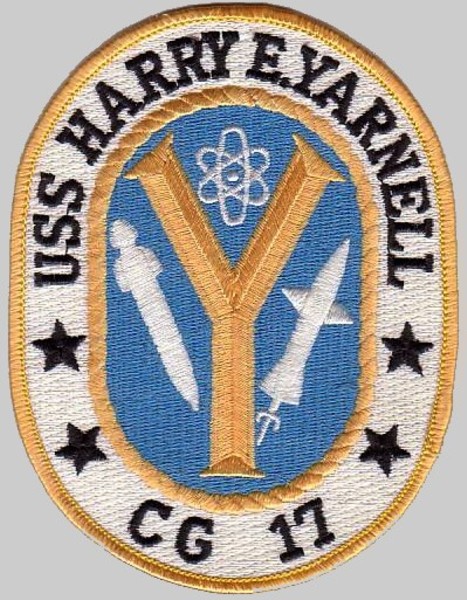
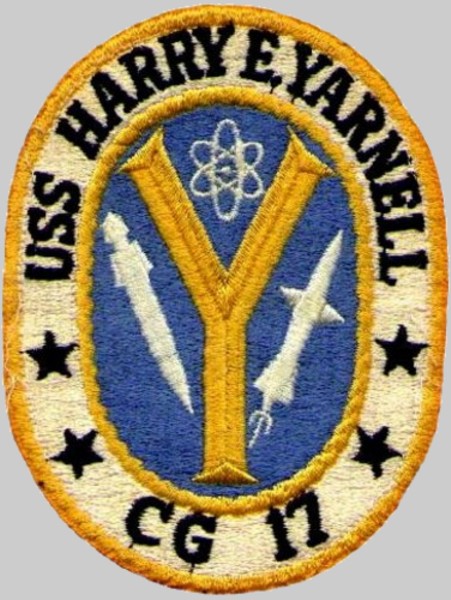 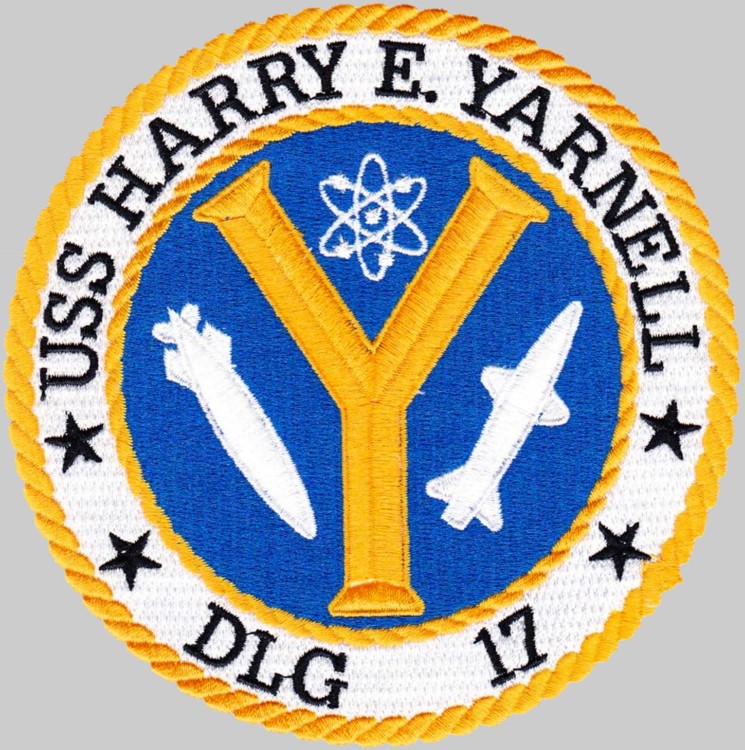 |
||
|
|
seaforces.org |
USN ships
start page | |
